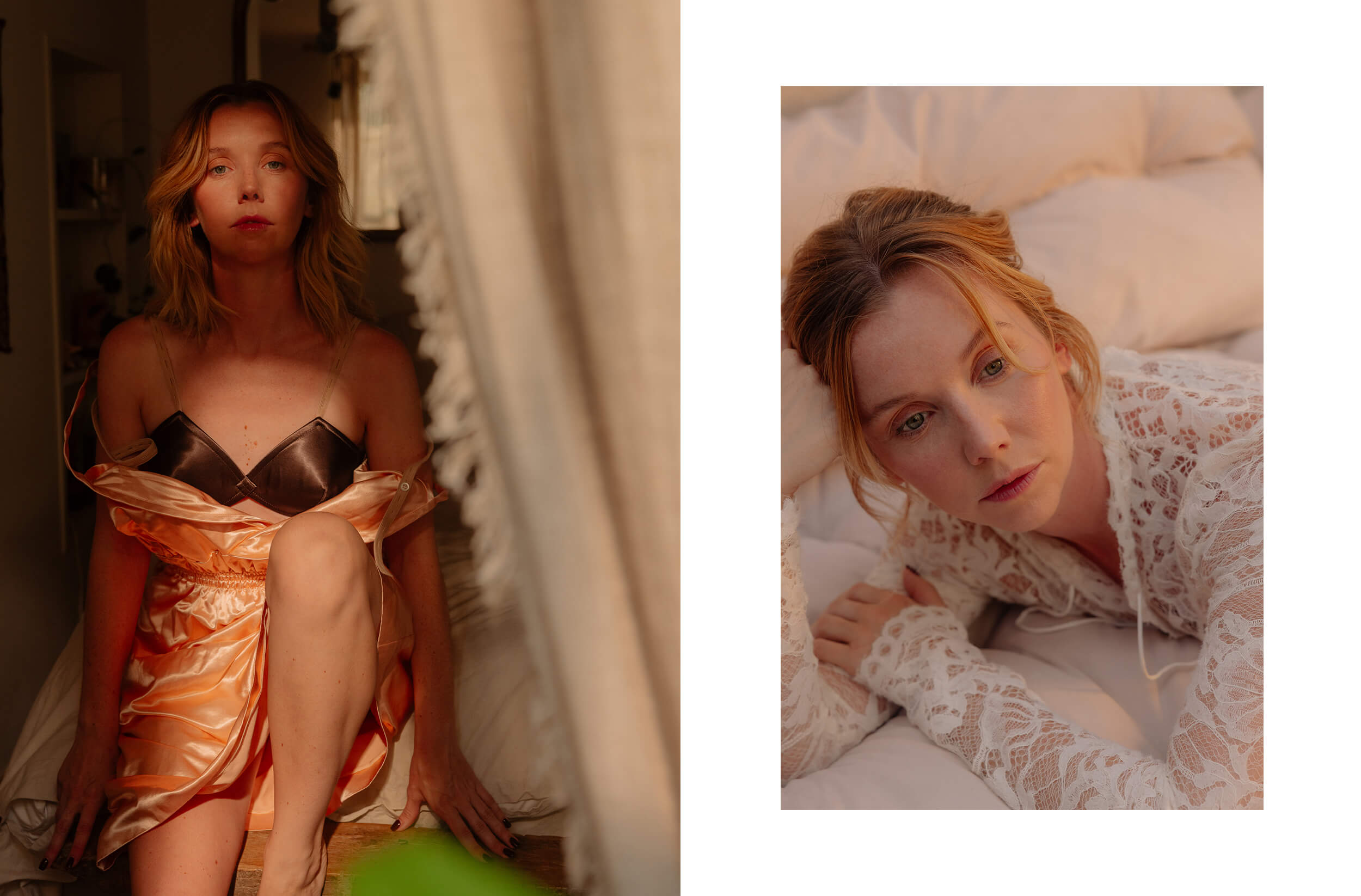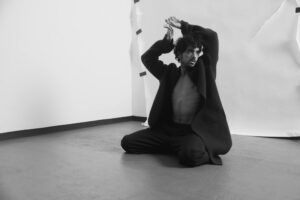With her sharp wit, magnetic presence, and a character who has quickly become a fan favorite, Lauren Lyle has firmly established herself as one of the most exciting (and excited) actors on screen today. As DS Karen Pirie, the detective at the heart of Val McDermid’s novels and ITV’s acclaimed adaptation, Lauren brings a rare mix of intelligence, humor, and vulnerability to the role. Now back for a second season – which is also set to reach US audiences on BritBox – she reflects on stepping into Karen’s shoes once again, navigating new dynamics on set, and finding the delicate balance between comedy, darkness, and raw emotion. And while Karen Pirie continues to grow in scope and resonance, Lauren is already looking ahead: her next project, The Ridge, promises to showcase yet another facet of her talent. In our chat, Lauren opens up about the moments that shaped her both as an actress and as a person – from her very first cinema memory to what grounds her beyond the screen.
What’s your first cinema memory?
My first cinema memory was watching “Freaky Friday” with Lindsay Lohan. I went to the cinema with my mom, and I remember being totally engrossed. I thought, “This is the coolest person I’ve ever seen in my life”. Chad Michael Murray? I completely fell in love with him.
I remember standing at the back of the cinema as the credits rolled, just like not wanting to leave and watching and waiting and watching. It was a core memory engrossed in my brain, and also her being like a bit of a rock chick indie, that’s what I then was like, like Avril Lavigne-style.
That’s one of my absolute favourite movies, too, I totally get it.
Yes, it shaped my identity. Lindsey’s character was so cool and confident, and I do sometimes think that I don’t care about being the prettiest always, that’s not my thing.
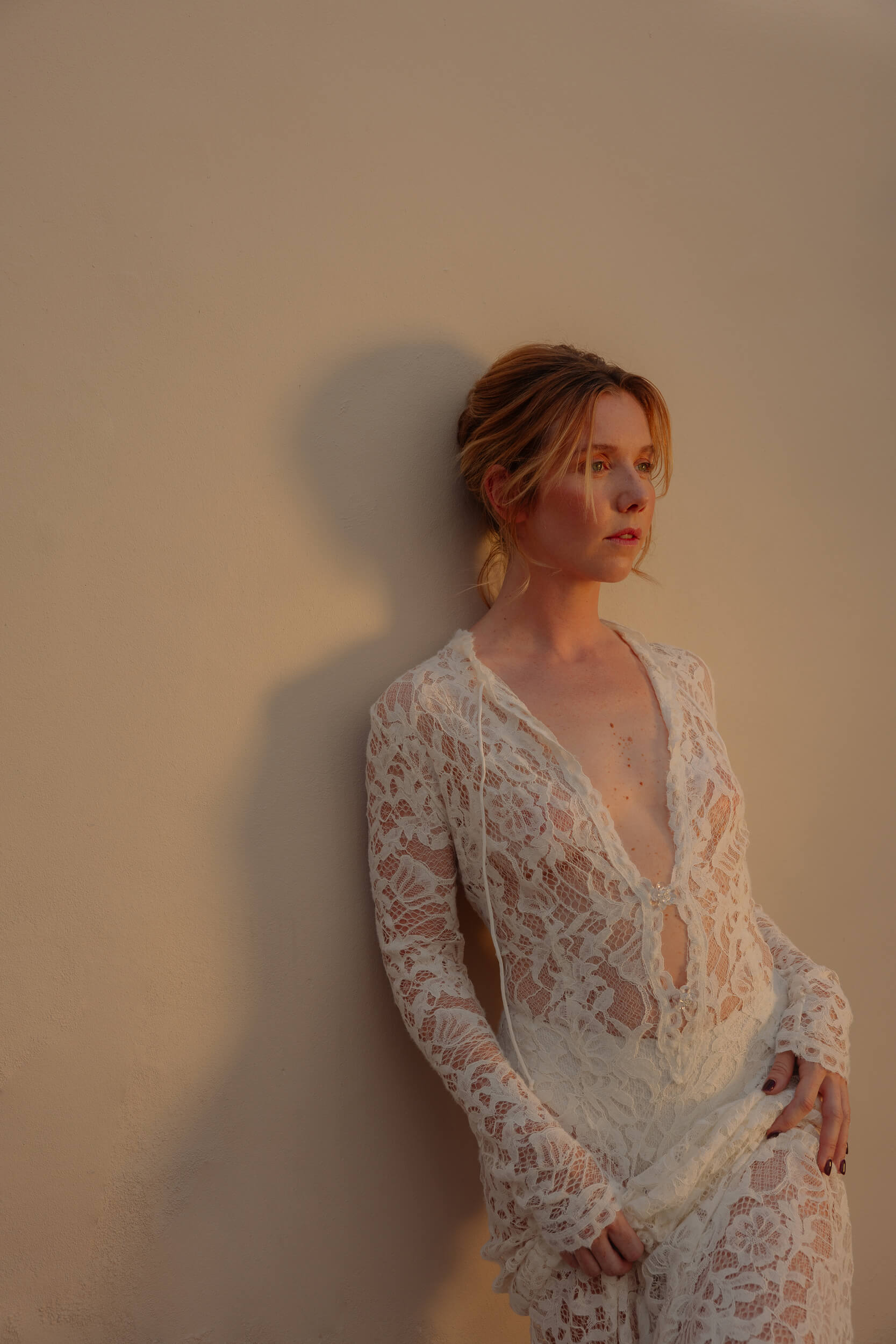
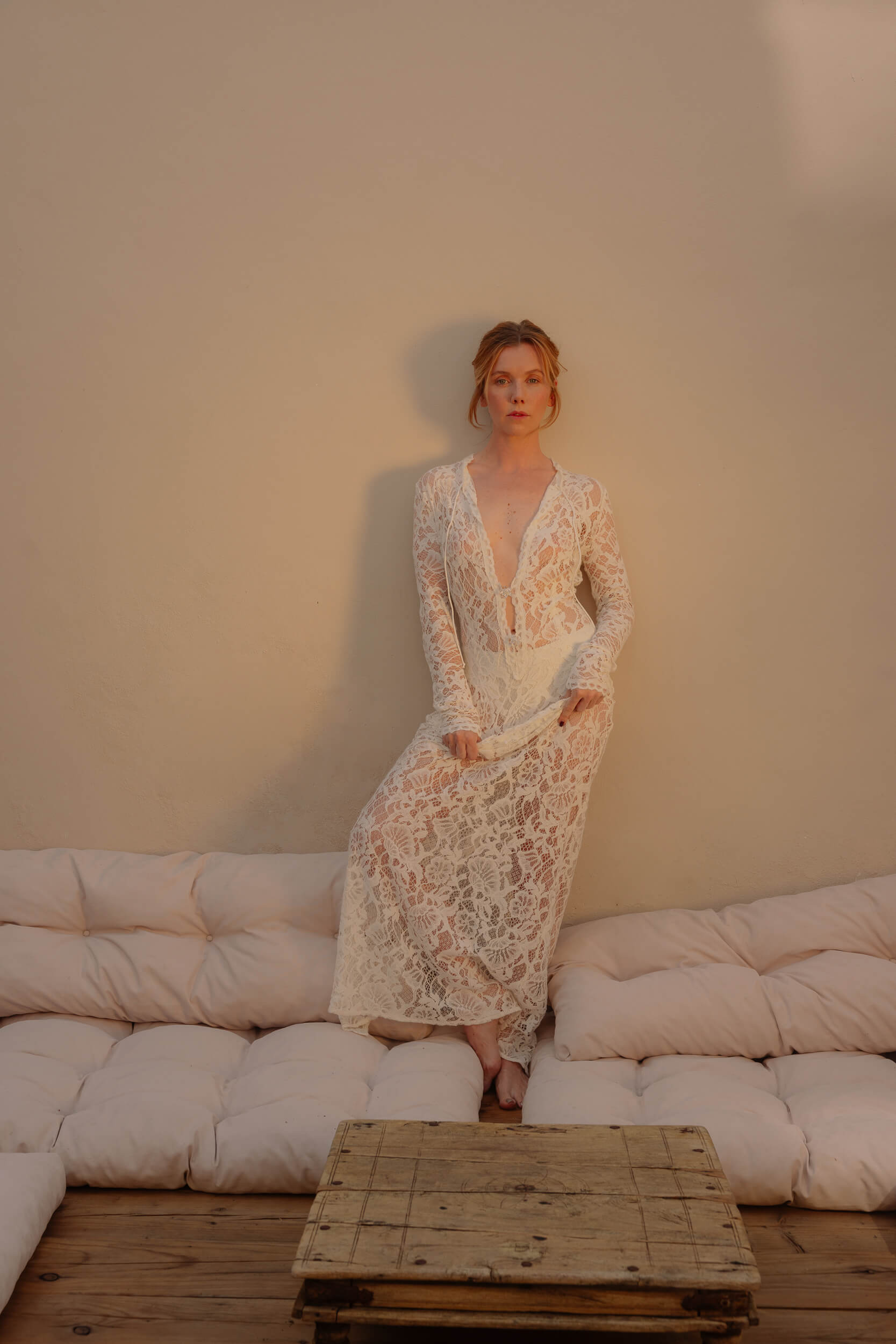
Now, speaking of your show, “Karen Pirie”, yours is a very layered, brilliant character. What was it like stepping back into her shoes for the second season? Did anything surprise you about her and her evolution?
I think I was initially quite nervous because in the first series we got a solid cast, we all became good friends, but for the second series, everyone goes because all the 80s people come in and all the 90s ones from number one are leaving, so it’s a new group of people.
I kept thinking, “Will it be the same? Will the energy work?”. However, the atmosphere got soon electric again, and I felt so confident, and I didn’t expect to be so confident that it was working again. I was worried I wasn’t going to be able to be funny again. You know, in season one, I always talked about how it felt like I was throwing my own party, and I just wanted everyone to have a good time. I thought in season two I’d be over that and would be more like, “Yeah, this is a great party, and everyone is having a good time”. Actually, I still felt like I really wanted to make sure that any new cast coming in felt welcome, I still felt like the host, and I think this made me go. I think that’s what it is to be number one on the call sheet – it is your party. I felt like it was my responsibility that the set was a happy place.
I guess I thought it might have been slightly more relaxing, and it wasn’t. It was like Karen became the boss and I became more of the boss and we both did it together. But by halfway through filming it settled and I was in a flow, I thought, “Whatever will be. It’s working, it’s cool. We’re just going to have to roll with it”.
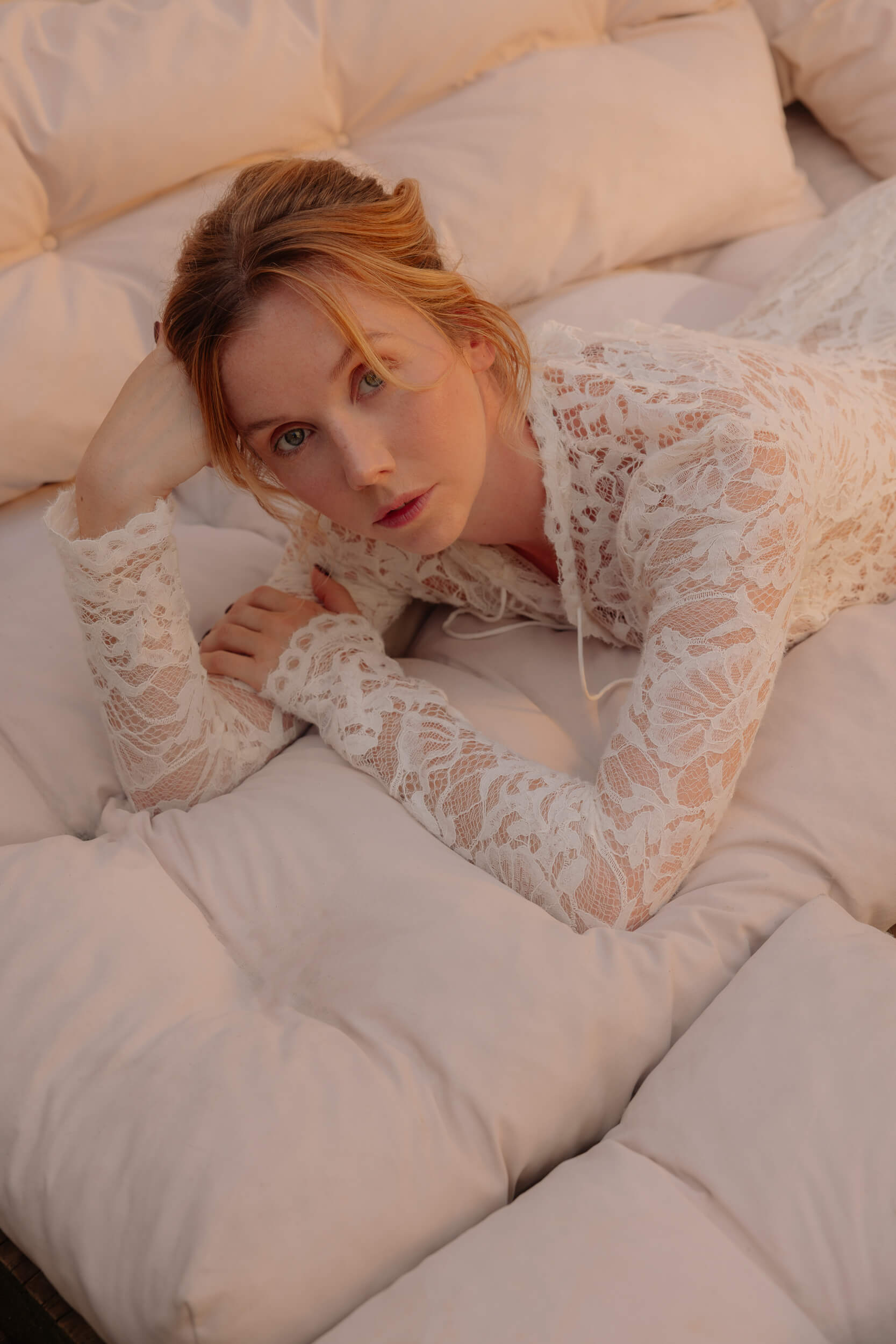
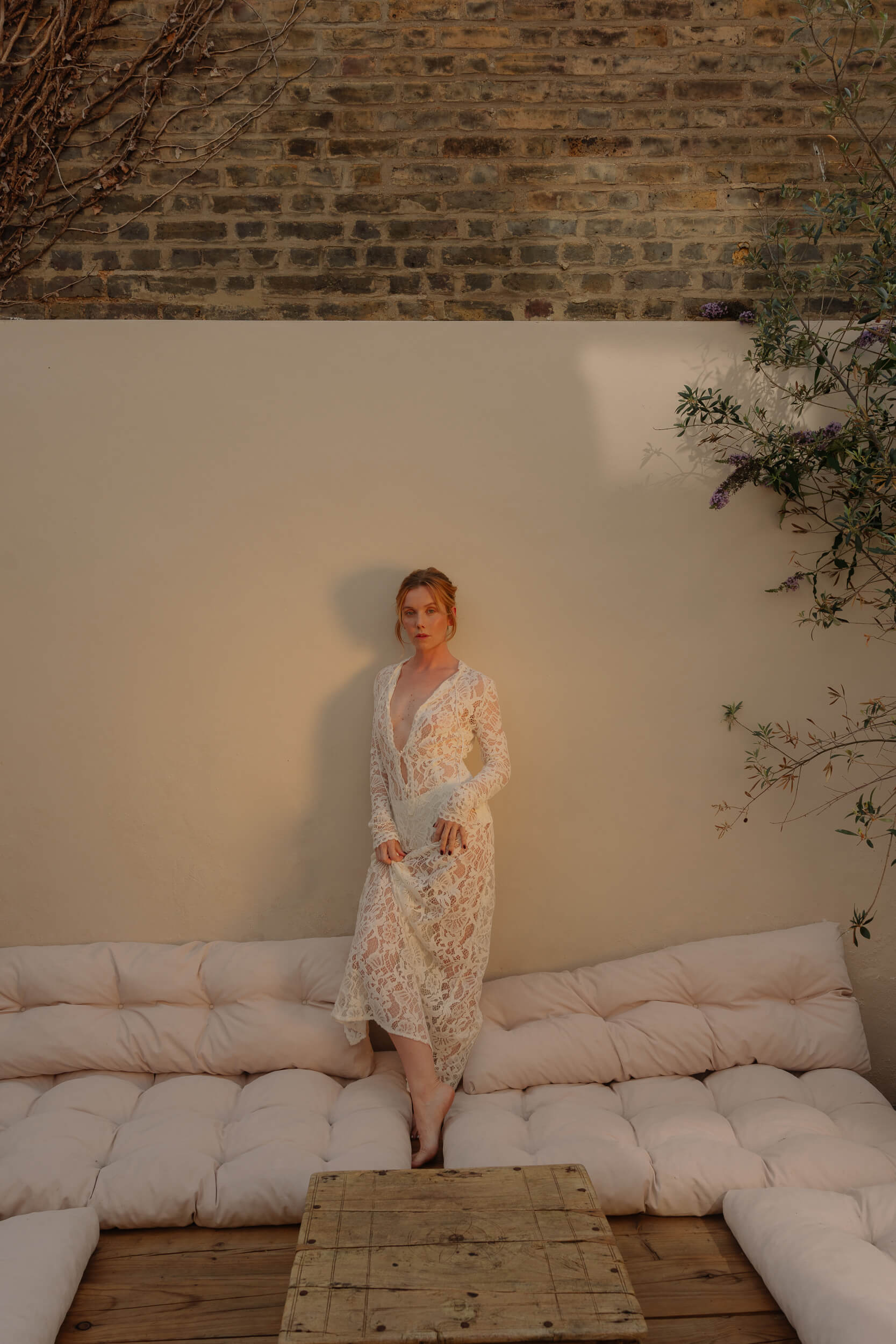
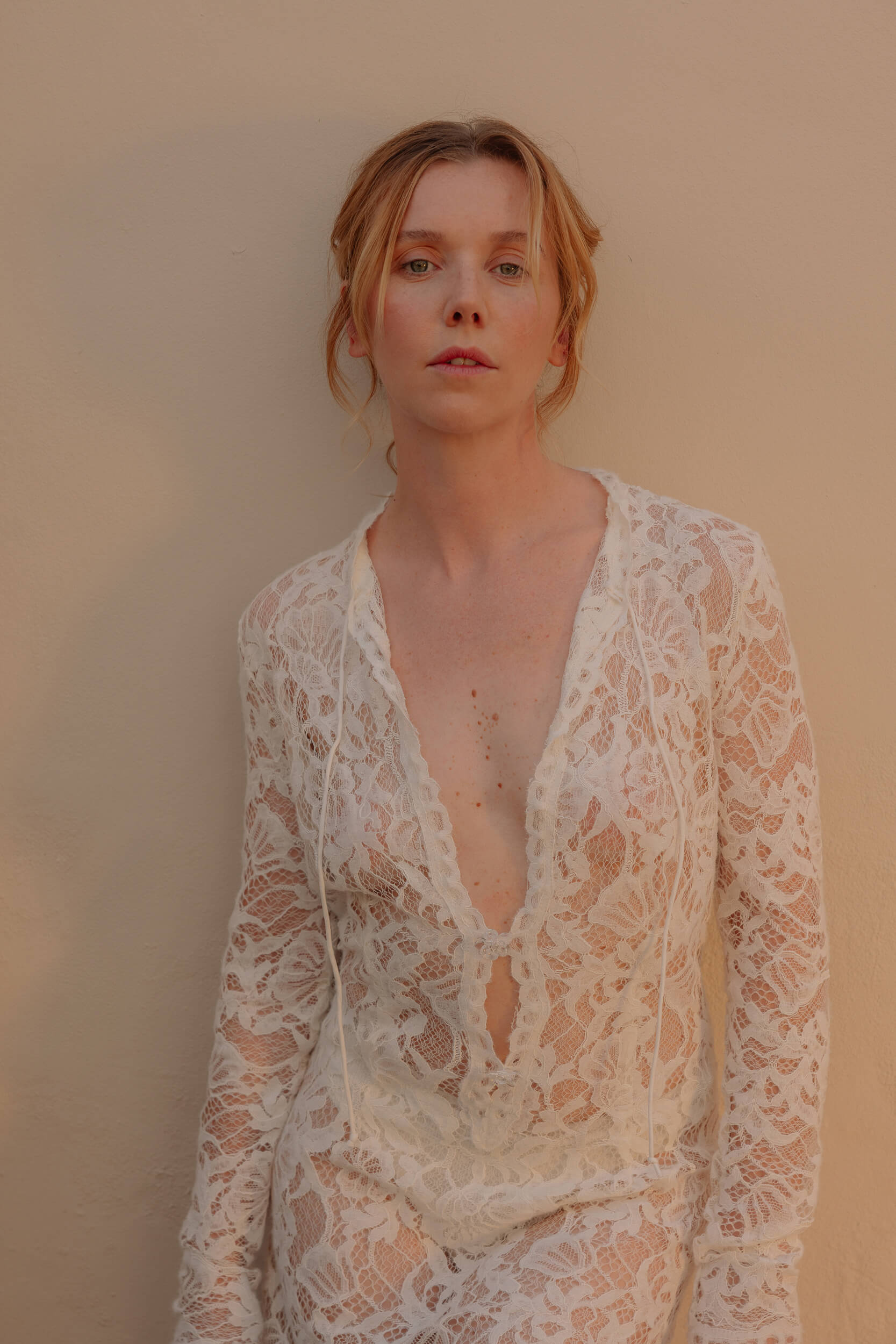
“I still felt like I really wanted to make sure that any new cast coming in felt welcome, I still felt like the host, and I think this made me go.”
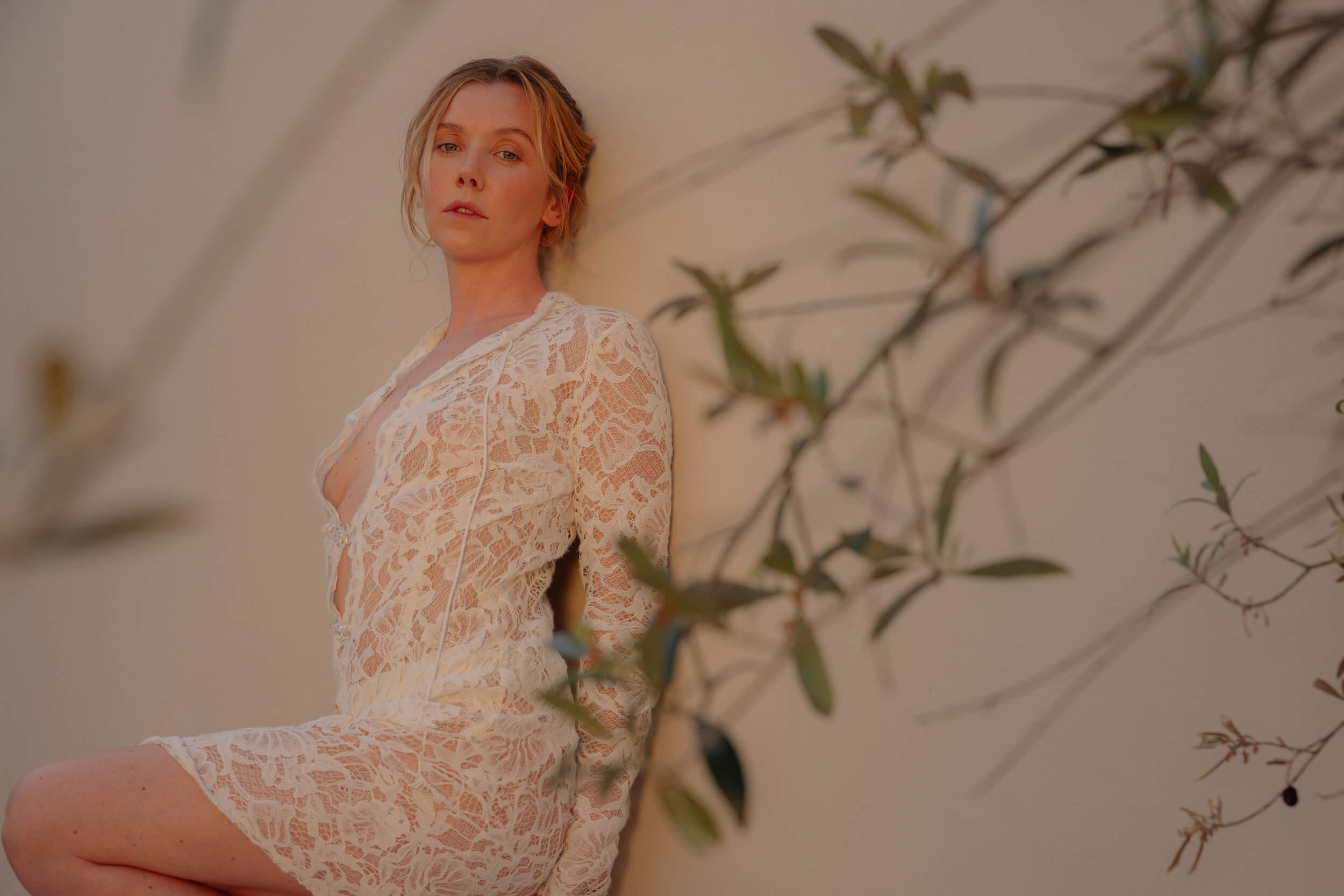
Anyway, you were so funny, one of the funniest characters I’ve ever met in a show. And she’s not trying to be funny, it’s natural.
Anyway, this season is based on a darker domain. How much do you engage with the source material when you’re preparing? Do you prefer to stay close to it, to the page, to create something more faithful? Or do you prefer to be more instinctive and just improvise?
So, I will read the source material once maybe, and then I’ll put it away. You know, Val McDermid, who wrote the books, is amazing. But Emer Kenny, the writer of the show, did a big adaptation of the novels, so quite a lot can change from the books. For example, in the books, the guy who’s the oil tycoon in the show is property tycoon in the books, but we changed it to oil in series because it made much more sense for TV with the miners’ strike and Scotland. There, oil is a huge political, spicy resource topic, at the moment.
So, if I read the books at the same time, it would start to get confusing as well. Also, Karen changes slightly, even though she’s still got the whole essence of what she is in the books, and Val, the author, is really happy with. However, she looks kind of different, she has the bum bags, she’s quirkier.
Then, I’ve kind of become a detective – I have stuff up on my walls where I’m going between because you have to know the case, because we don’t shoot in order, we shoot out of sync, so you have to know who at this moment you trust, who you’ve already interviewed, who you think is a suspect. The same goes for the relationship with Phil, knowing where they’re at, because that can be really rocky and up and down. Compared to the books, we’ve updated it to be quite a modern, young, cooler relationship.
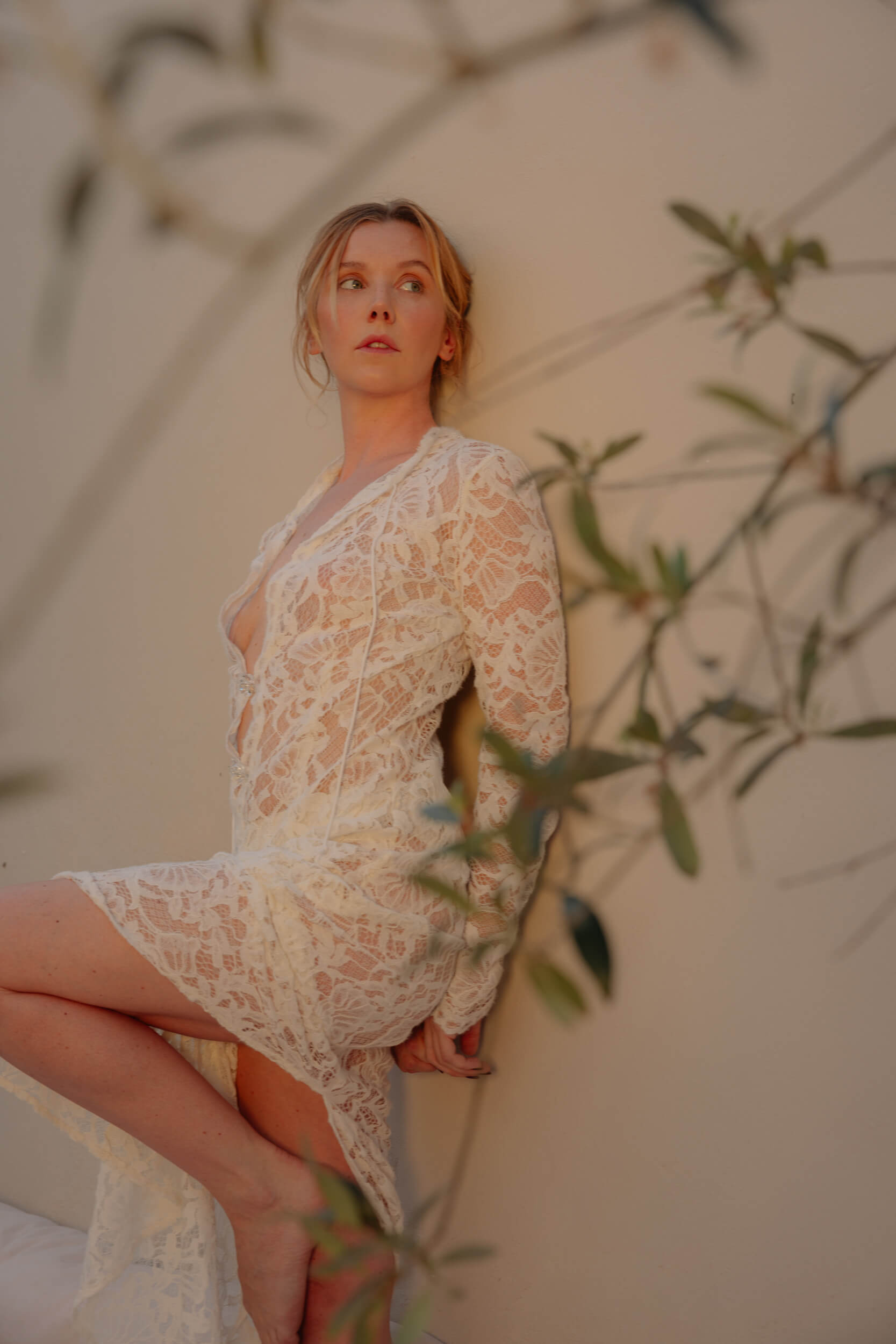
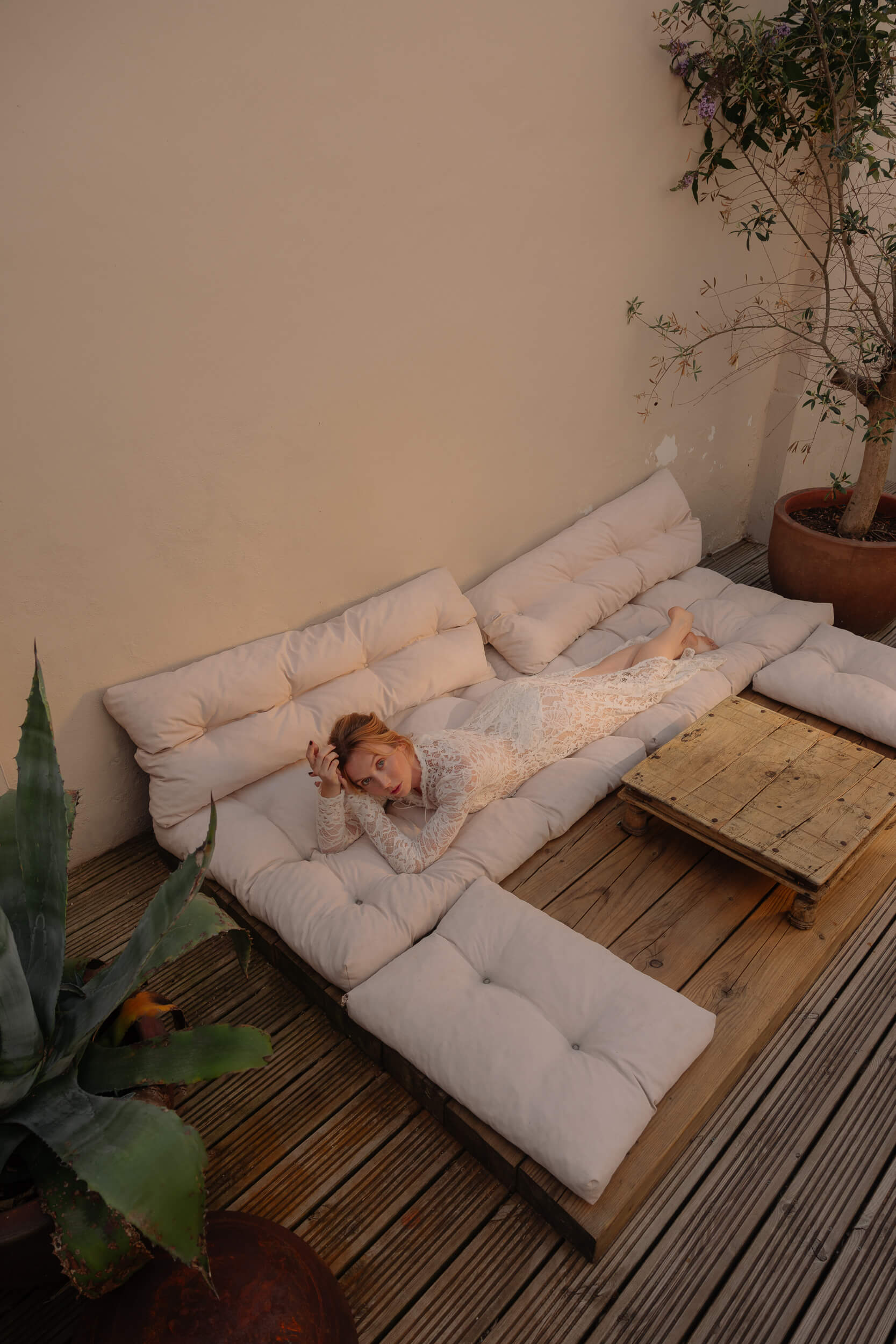
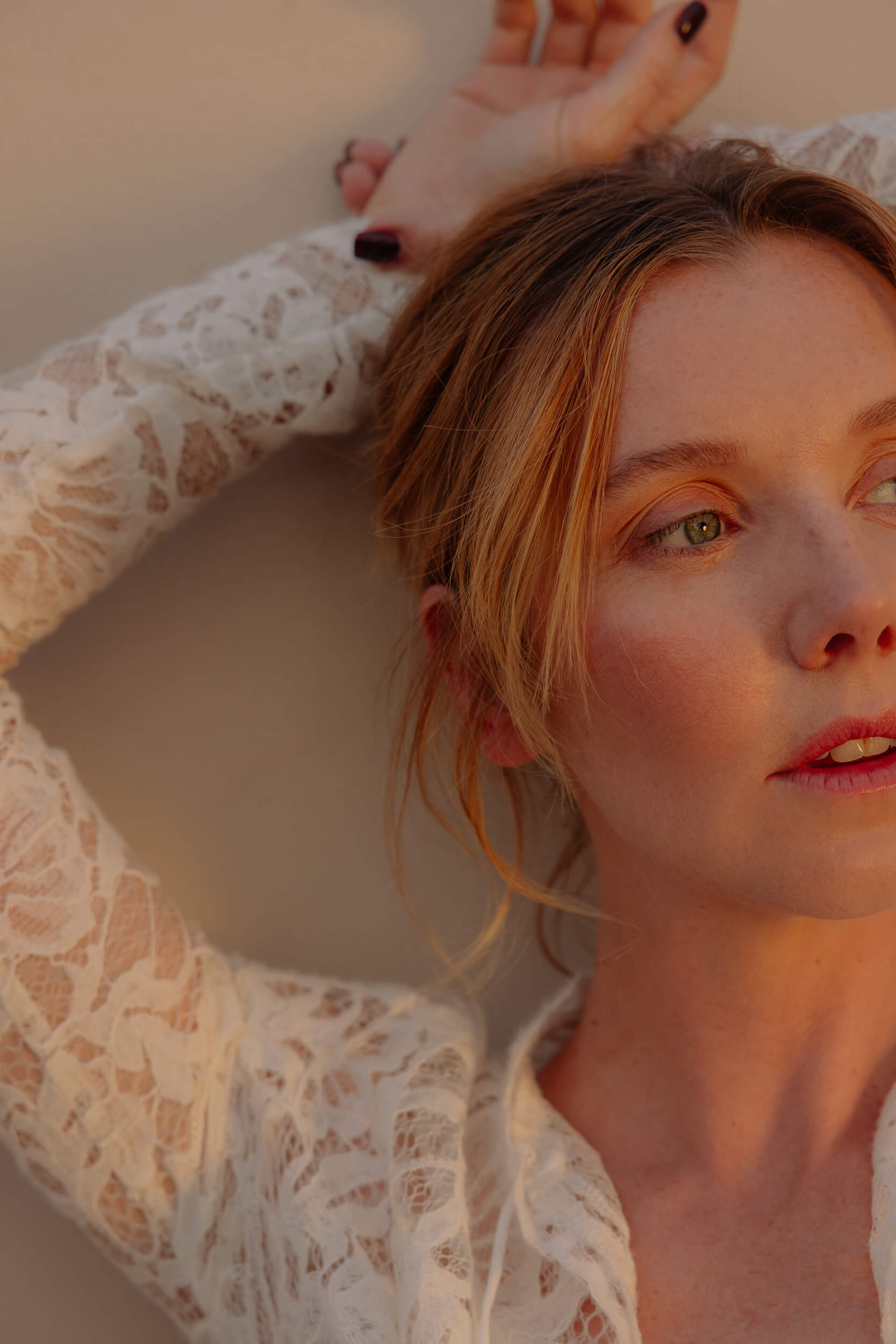
In this show, there’s a unique tone. It’s smart, it’s dark humour, but it’s also funny. How do you approach balancing all these nuances and emotions in your performance?
We really carefully consider it because you’ve got to be careful with the humour, make sure that it doesn’t become a comedy. And then also with the darker stuff, you have to honor that and not just let it brush away. There was a scene at the beginning of episode 2 when Phil and Karen almost break up, and it’s quite sad. In that moment, there was stuff going on in my personal life, and Emer would write stuff in that might be happening. Sometimes she’ll do it, she’ll take influence from both of us, and she has so much power. That time, she came to me and was like, “I’ve put some stuff in. This might be really hard to do, or you might find it cathartic saying these words. Because I feel like maybe there’s some things that you’ve been wanting to say in your own life.” And we did it, and it was super emotional. Gareth [Bryn], the director was like, “Great, we’ve got it, but now we need to do another one where it’s like totally stripped back, and it’s much less emotional. This means that we can flow on to the next bit much more easily potentially”.
We just work like that, where sometimes we’ll get loads of different styles of one take, and it can go in lots of different directions, so that when they come to the edit, if there’s something quite funny afterwards, it’s not been too emotional before, and they can flow it nicely. In that case, they ended up using a mix, and it’s a fine sort of tuning. I also think that because Karen’s not trying to be funny, the humour doesn’t come across as like gags, she’s very much like a girl being really honest, and I think a lot of times that can be quite funny. She’s saying stuff we wish we could all say.
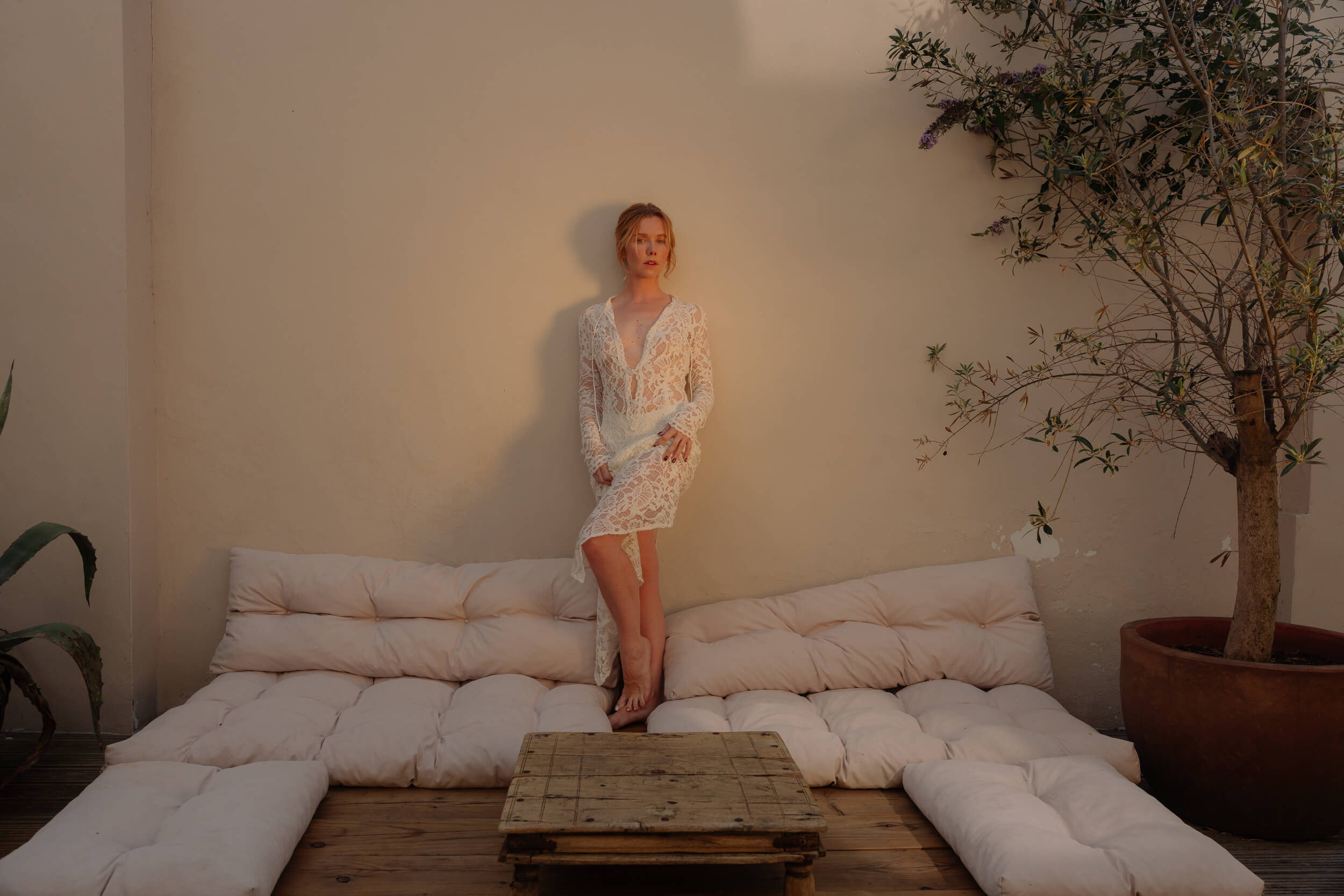
“She’s saying stuff we wish we could all say.”
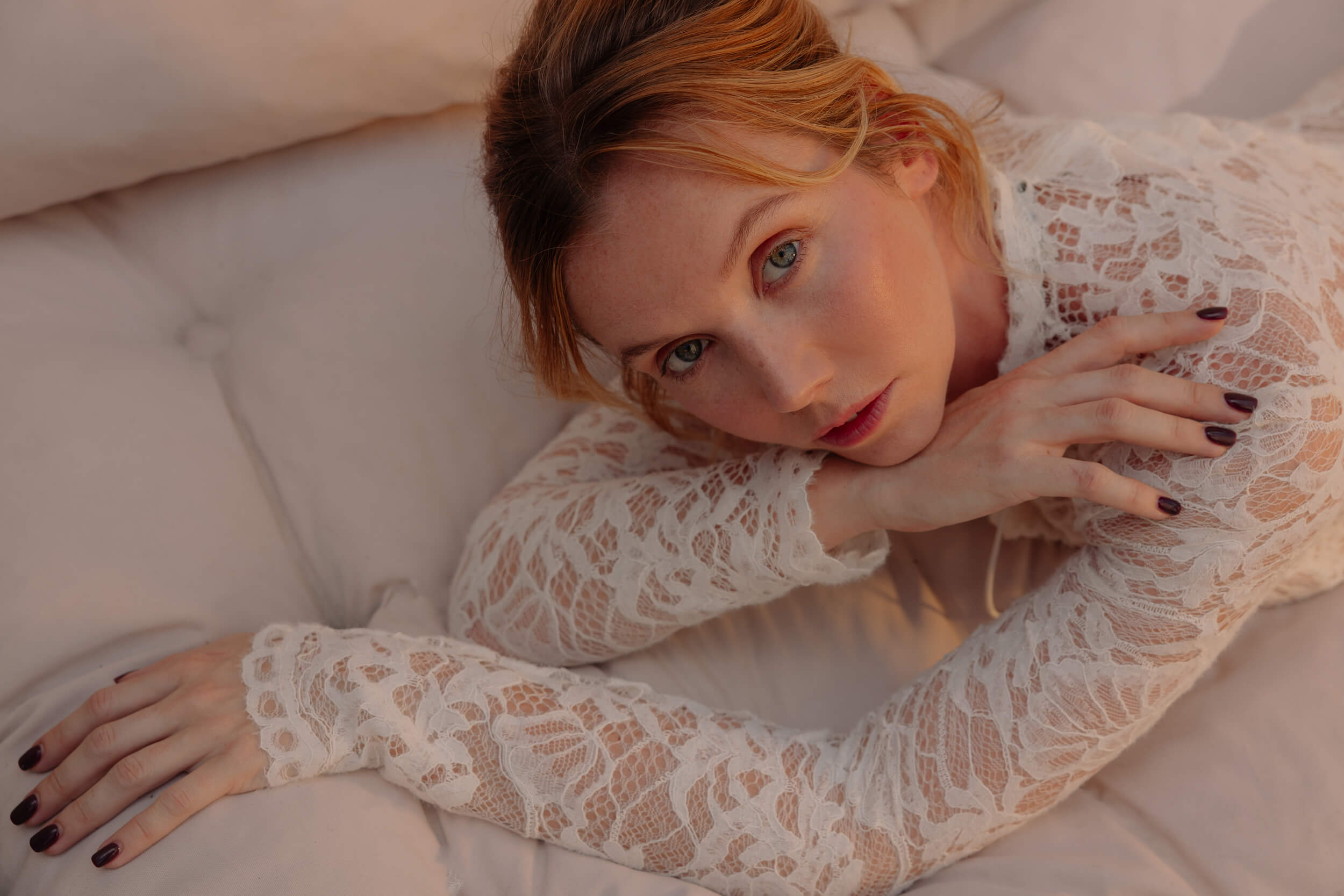
She’s an example I’d really like to follow [laughs]. So, Karen kind of goes against the rules, especially in a male-dominated environment, which is the one where she works. Have you drawn anything from her? Like from her strength and stubbornness in your own life? Or the other way around? How much of yourself did you put in her?
Yeah, I really do. I find myself on set being her and being confident and really direct as her. And you get really used to being quite direct with the lines. That means I end up being like that with the director or with the producers, though, and sometimes I catch myself going, “Oh, was that too direct? Was that too much?”, and they sometimes laugh and shut me up or not. But sometimes it works. I think I’ve really had to trust that my opinion is welcome and is valid, and I have taste, and I know the character, and so people listen to me. So, I think I’ve made mine a bit of her pride and so now I can even pretend for a bit and convince myself that I’ll go with an opinion and think, “Why would they not want to hear it? And if they don’t want to hear it, that’s fine”, but try not to be too offended by it.
However, she’s also vulnerable, like I am. I’m really trying to step into a place in my life where I know there’s strength in vulnerability and there’s no shame in saying how you feel. I think it’s a better thing to do for your soul than it is to just be quiet and rise above things all the time.
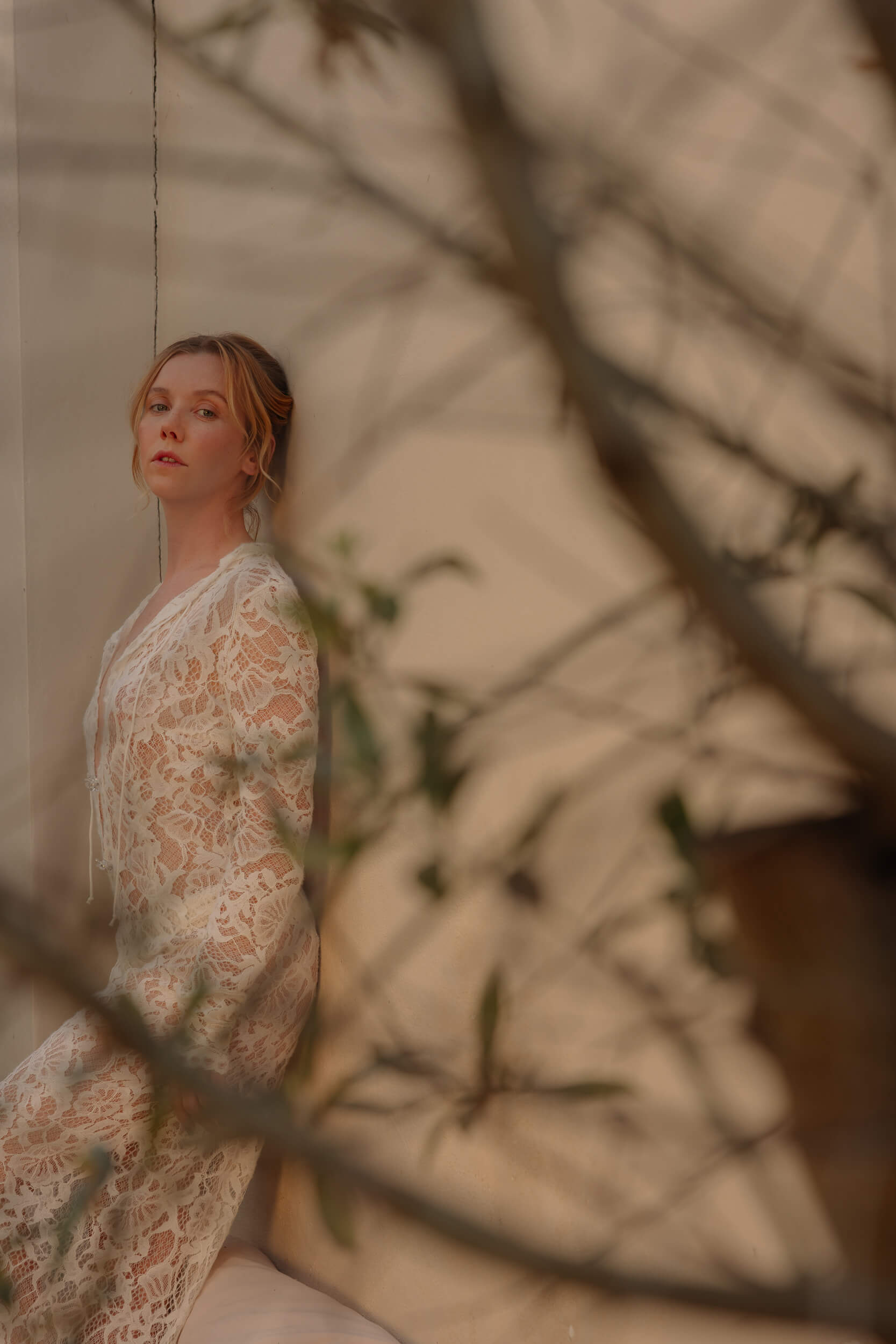
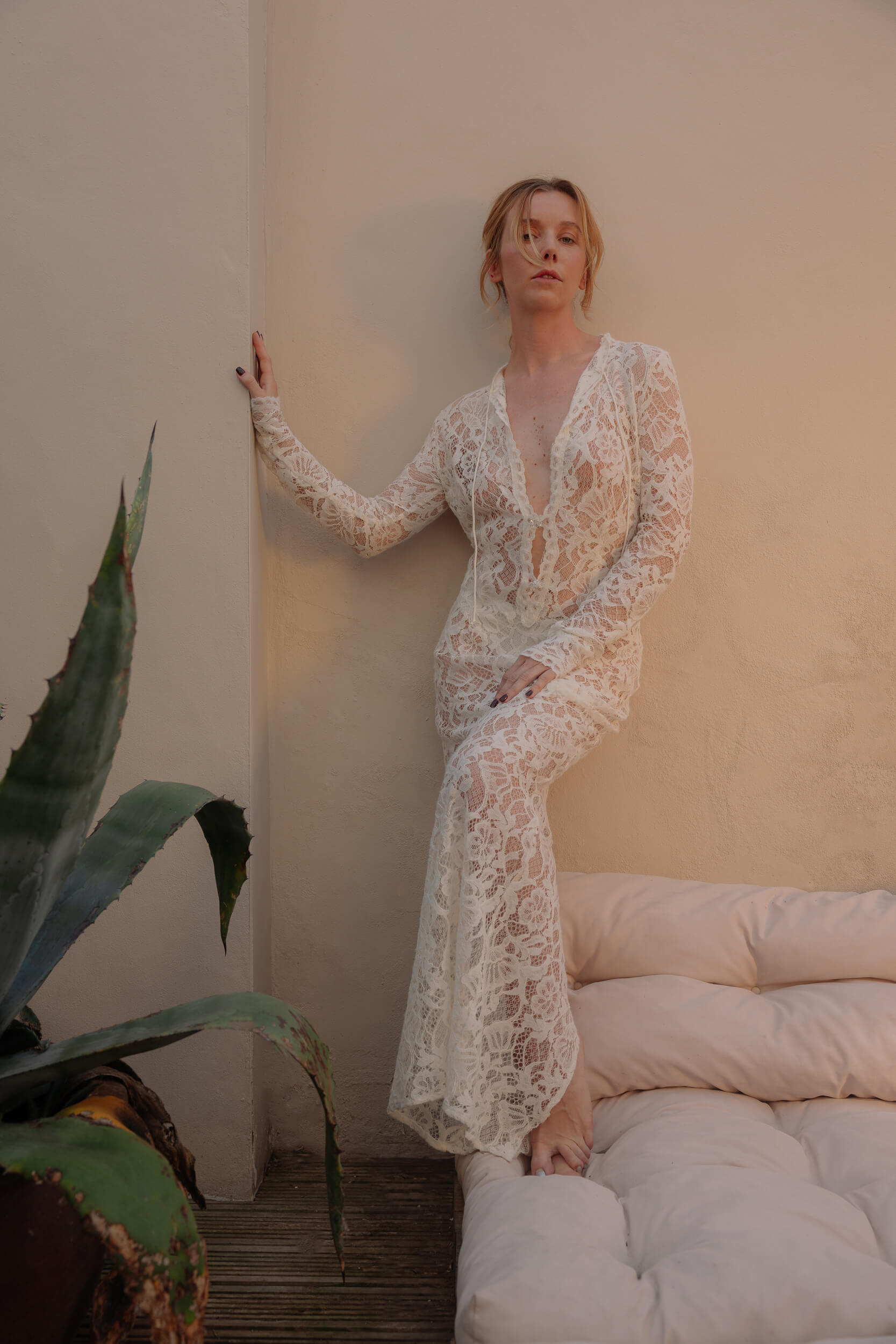
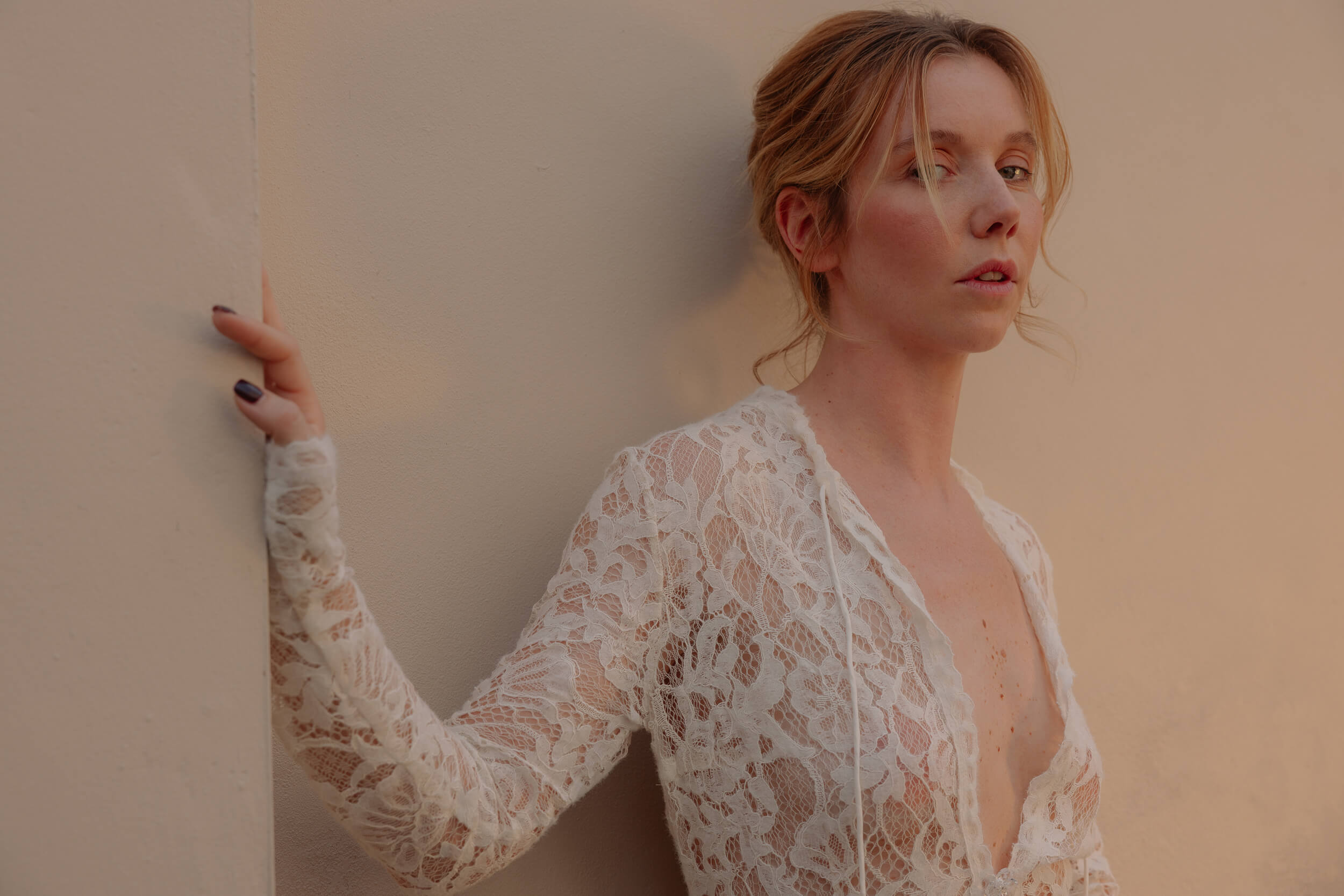
I think it’s nicer for you to say something, absolutely.
So, Karen might be very different from some of your other past roles. What do you look for in a character when you decide to accept a role or a project?
Nowadays, it’s become a lot more about who I’m working with.
For example, I did the Netflix series “Toxic Town”, last year, and I knew the whole cast who was going to be in it beforehand, I knew it was going to be Rory Kinnear, Amy-Lou Wood, Jodie Whittaker, all these amazing actors, and the part wasn’t what I originally auditioned for. They offered me something totally different, a smaller part, which though had things I’ve always wanted to do – she was quite posh, glam, and I really liked that because I never play someone that’s glam, I’m always crying [laughs]. So, I thought, “Oh, I know I’m going to be working with those people the whole time, I definitely want to do that”. What’s fulfilling to me is to get excited about being in a scene with people like that and jousting with each other, if that makes sense.
Now, what I look for is maybe just something that’s different to what I’ve already done. I’d like to do something that’s maybe a bit more vulnerable or that’s a comedy or a film, something that’s a sidestep to where I’ve been. And then, as I was saying before, who I’m working with is a big deal. When you work with people and you do projects, you suddenly realize that actually that is what it’s all about, that sometimes the scripts can be great or they can be bad, but if you’ve got amazing people to work with, it can be great in the end. The chemistry is what it’s all about, too – on “Karen Pirie”, our chemistry as a team is really strong and it just makes it so enjoyable to go to work.
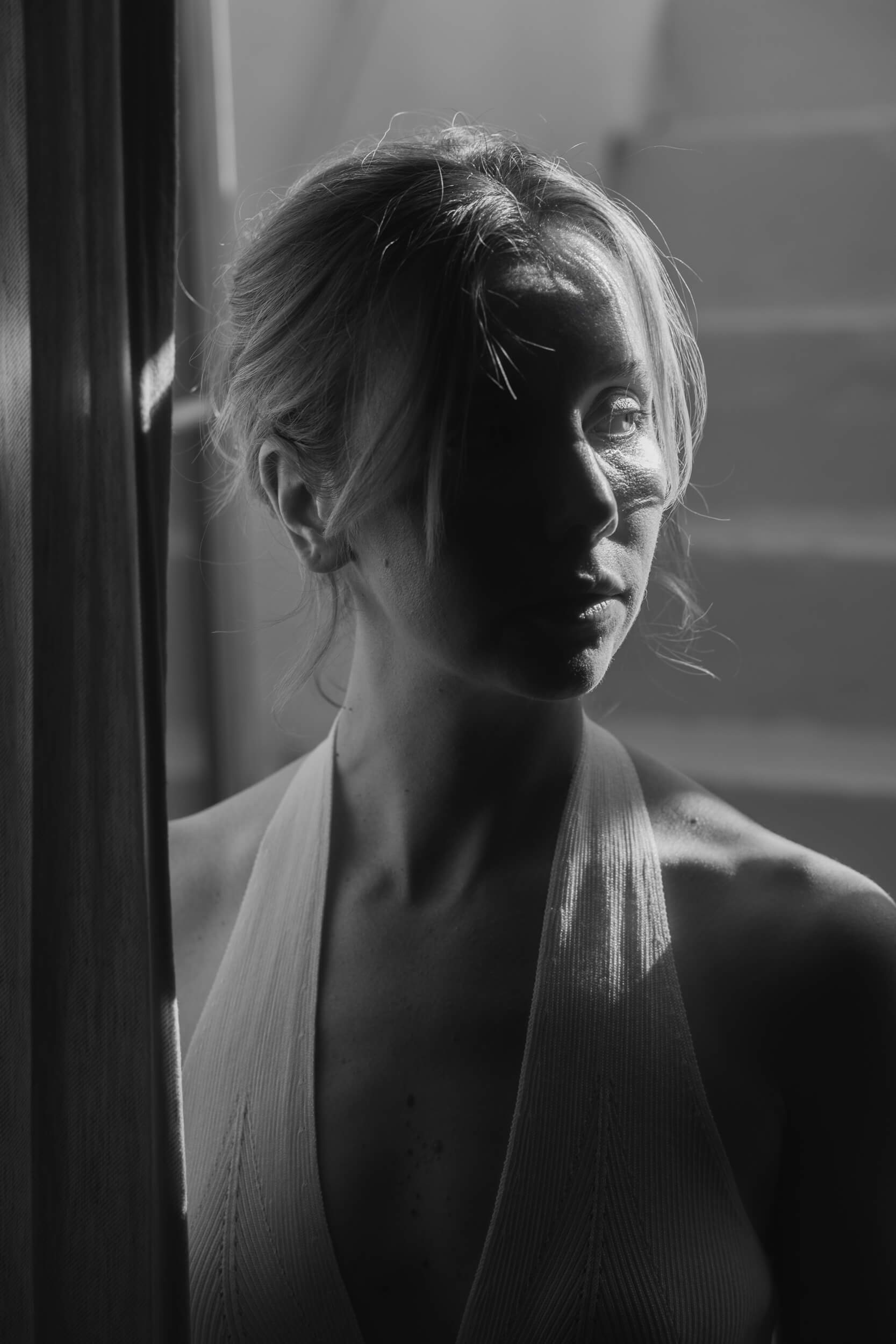
“When you work with people and you do projects, you suddenly realize that actually that is what it’s all about, that sometimes the scripts can be great or they can be bad, but if you’ve got amazing people to work with, it can be great in the end.”
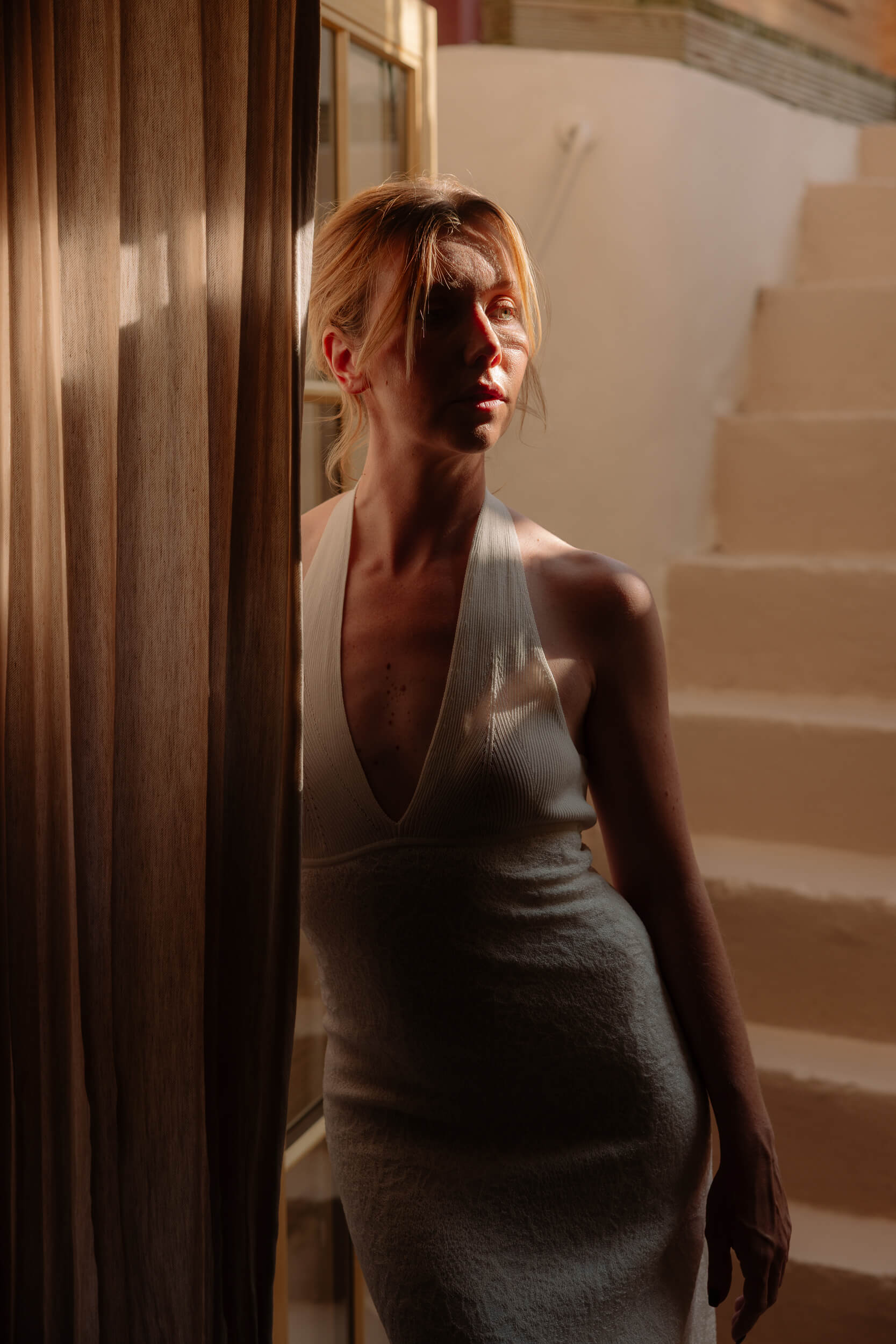
If Karen were to interview you, what do you think she’d ask first?
I think she’d be like, “Why do you want to be in front of a camera? Why do you want to be seen by people? Is that not really embarrassing?” [laughs]. I think she’d ask me to come and help her with the PR and press of the police force. I think she’d come and be like, “Can you be a spokesperson for the police for me? I’ll tell you what to say. I’ll tell you what we need. Can you just come out and stand in front of a camera on the news and expose things for me and say things? Because I don’t want to be in front of the camera”. I could imagine her feeding me lines and ask to post things on Instagram. Als, maybe she’d ask for style advice – she’s kind of cool, she’s got her own style, I think she loves her bum bag, her Doc Martens, she loves wearing Fred Perry and Carhartt. But maybe sometimes she wants to get a bit sexy for her boyfriend and she’d ask me, “What would you suggest?”.
Speaking of “The Ridge”. Mia is described as fleeing addiction and a professional life in tatters. How did you prepare to portray someone dealing with both addiction recovery and profound grief?
I spoke to addicts and did a lot of research into how an anaesthetist could easily steal drugs. Anaesthetists are proven to be at much higher risk of addiction, I think due to such close proximity to the drugs. It was fascinating to explore how you can fall into that. Mia is also dealing with a lot of childhood trauma that she lets seep in. I enjoyed using my body in a way I haven’t for a role before.
Your character arrives in New Zealand expecting a wedding but finds her sister dead instead. How do you approach playing those extreme emotional shifts from anticipation to devastation?
I tend to just throw myself at it all gun’s blazing.
I’ve got good at knowing my process and how to pace myself. I love towing the delicate line of dropping the audience into something immediately unexpected. We shot the journey at the New Zealand training centre for flight attendants, it was so cool being on a real plane. I have got good at getting in a zone for the devastating stuff, finding a quiet corner to lock in, music, communicating with the director what i need from the set to have the space to access emotions. Often the pressure is helpful and if I trick my body into a small amount of panic I can push the rest into happening.
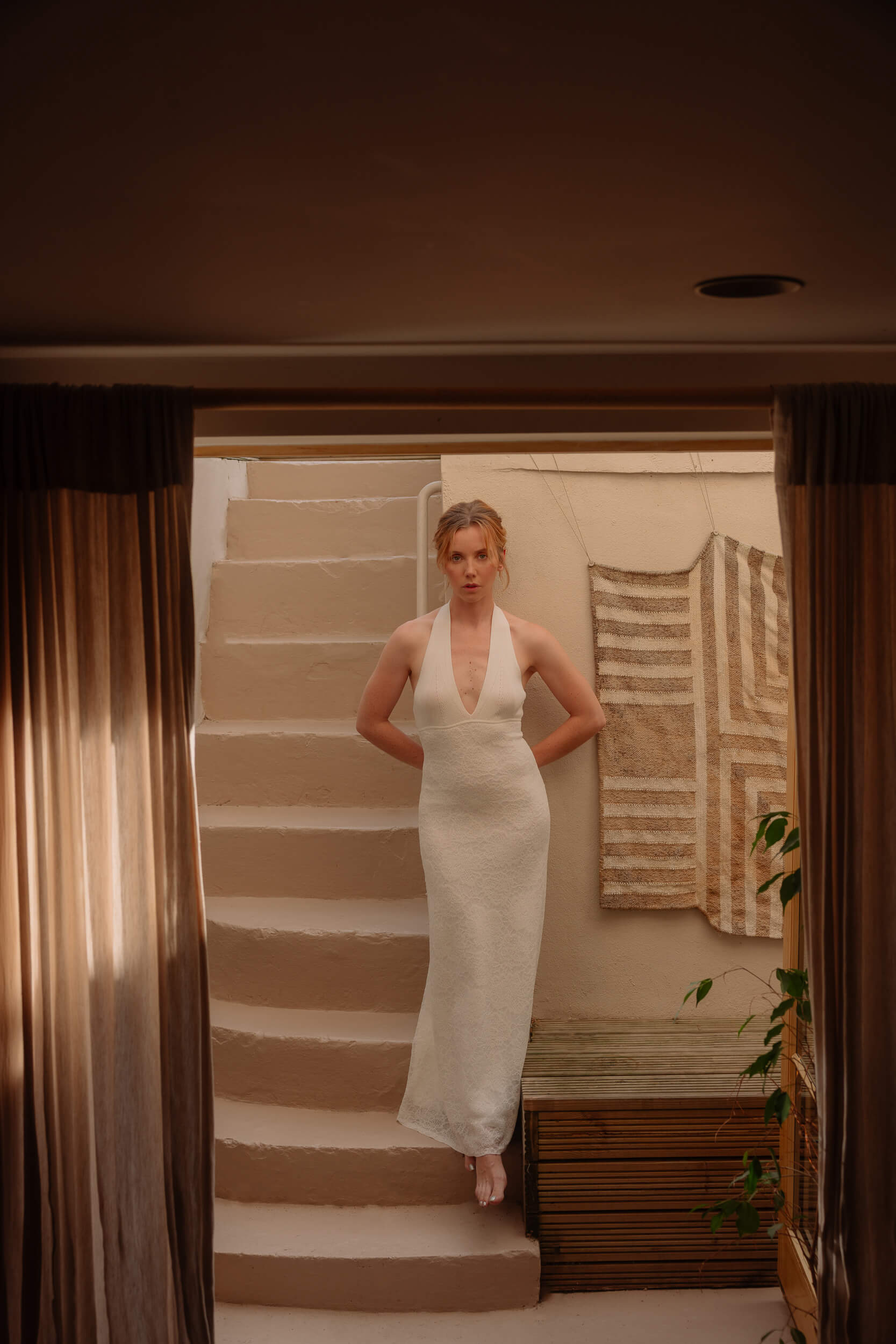
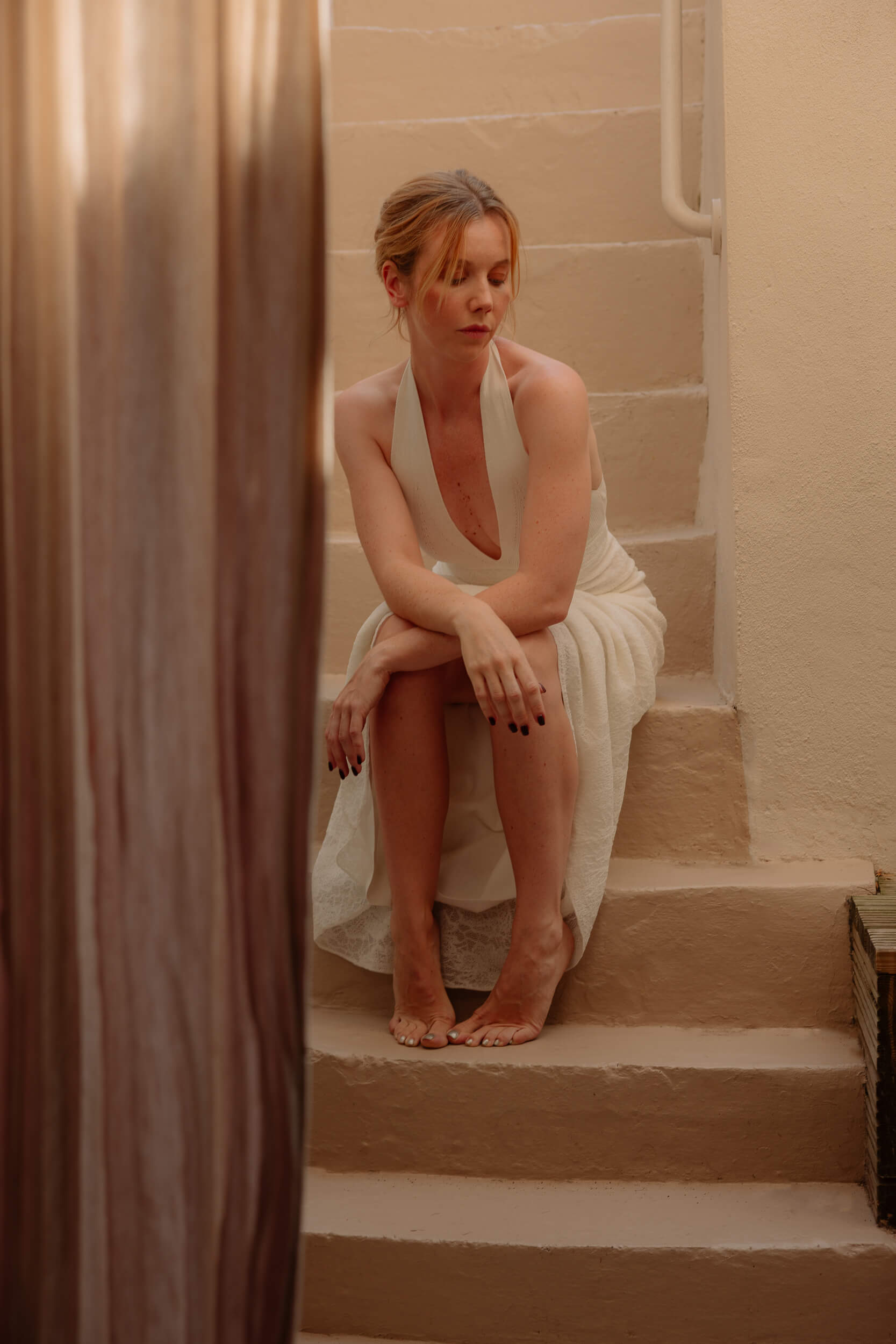
You mentioned New Zealand is like a second home to you. How does filming there influence your performance as Mia, and does that personal connection enhance the storytelling?
She’s an outsider and I was the only Brit over there in the show. All the crew and rest of the cast were Kiwi or Australian so that really plays into your experience. I absolutely love New Zealand and went to school there but a lot of friends have left now so I was still alone a lot. I didn’t have much down time so I was fairly immersed, but on days off I would make sure to find the beach and eat at my new favorite cafe Honey Bones. Shout out to the guys there, made me feel very welcome. NZ is such a special place.
What makes this world so uniquely unsettling?
It jolts you at every turn and in the beginning, it doesn’t give you a moment to breathe, much like Mia. You really have to jump on a moving train that feels like it’s about to explode until answers start to be revealed. It turns from thrills to getting quite sexy and evil. Generally, always quite strange and odd in a delicious way.
Was there a moment in your career, maybe early on, when you felt like, “This is what I’m meant to do”? When did you understand that you wanted acting to be your job?
When I knew I was good at it. In high school, we did a production of “Bugsy Malone”, and I didn’t have a big part at all, I was “the ensemble”. There was this one moment where they told me, “We need a big laugh, so at the end of this song, can you run down the middle of the auditorium and then bang into the wall at the end?”. I think it’s in the scene where they’re shooting everyone with custard pies and so in that scene I was hit, and I had to run down. And every time I did it, I got such a big laugh, and I was like, “I’m not even trying that hard, and everyone thinks this is funny. I think I’m quite funny!”. From that moment, I thought that maybe I’m meant to be in front of people doing this.
So, I did plays in high school and I got the leads in shows, I thought people thought that I was decent at this, but the time where I thought, “All right, this is something you can do” is when I got my first agent. My first audition with that agent was “The Crucible” at the Old Vic on the West End in London; I got the smallest part in the whole show, but for me it was huge. I remember getting the call from my agent and I couldn’t believe what she was telling me, I couldn’t believe I was being paid like 500 quid a week. I took my top off in my apartment, I was running around on the phone, and it was the smallest part, but I finally had been told, “You are good enough that someone wants to pay you money to do this job. It’s not much money, but they want to pay you to do this job”. And I also understudied the leads, so I told myself, “You’re good enough that if someone was sick, you could go on as the leads”. My mom stopped asking me if I had a plan B when I got that job, and that shifted my thoughts on,
“Okay, finally you can maybe do this”.
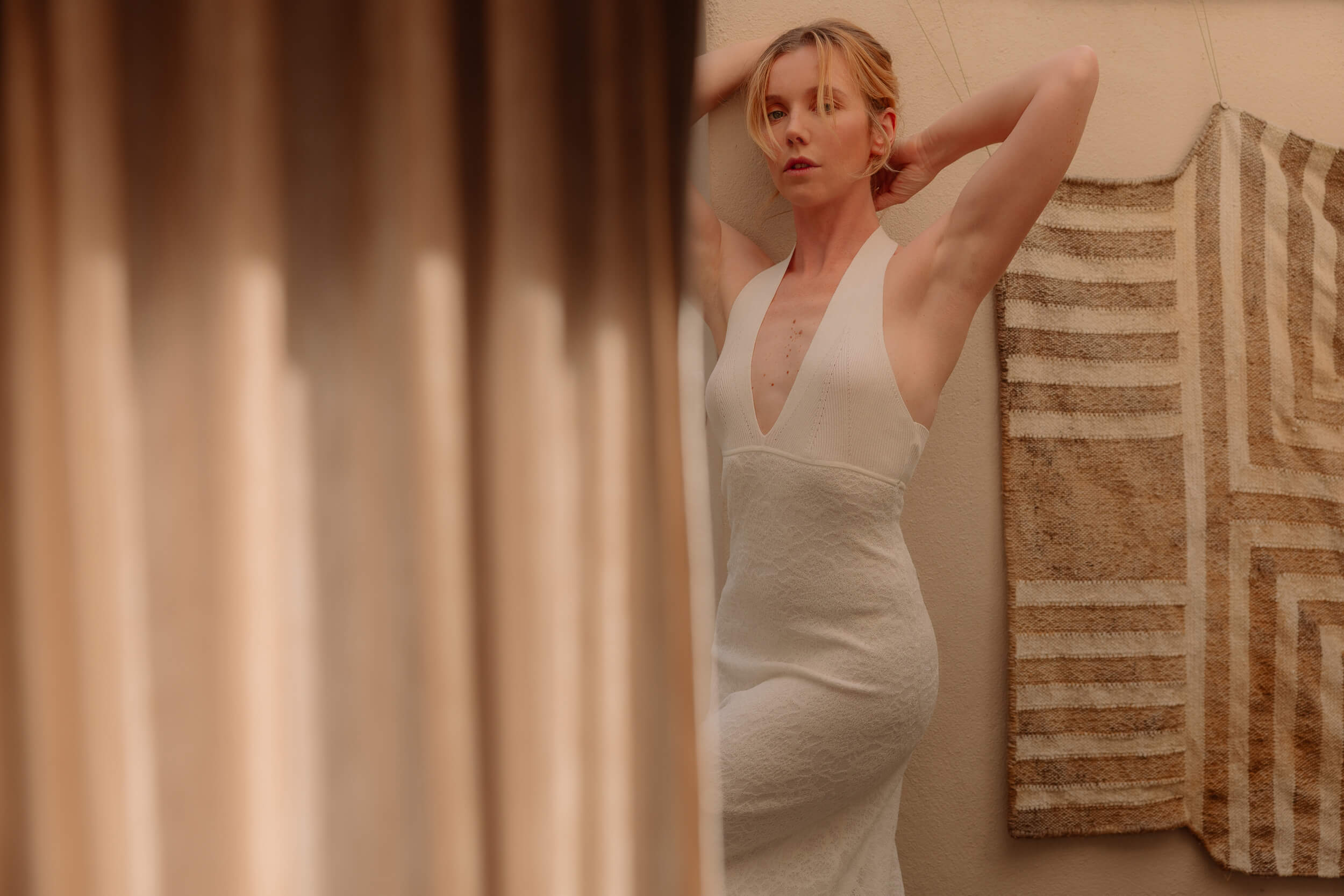
“From that moment, I thought that maybe I’m meant to be in front of people doing this.”
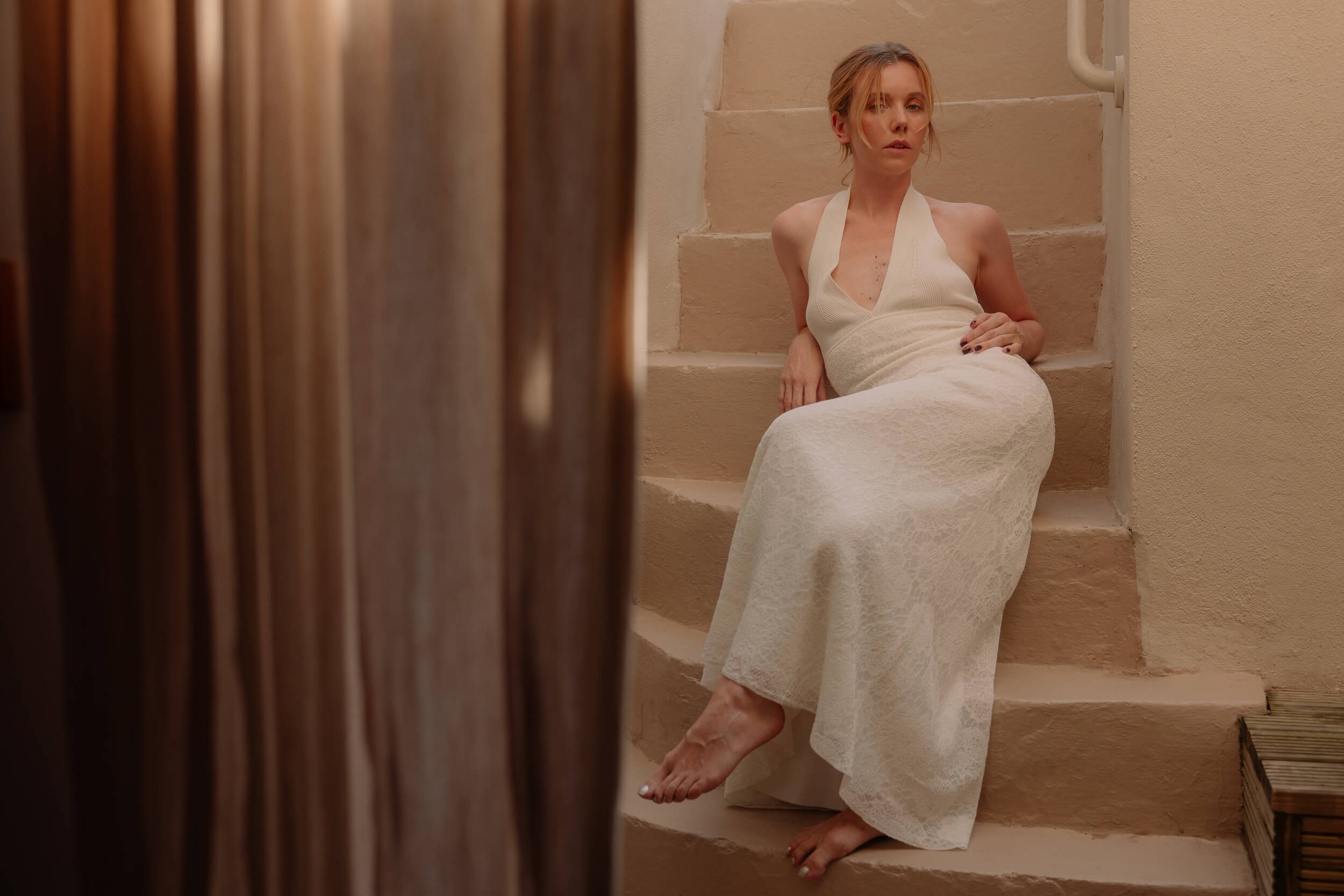
Such an inspiring story!
Speaking of inspiration, your characters are usually quite intense, emotionally speaking, but offset, what is it that grounds you? What’s your way of unplugging and recharging after something intense going on?
I’ve really thought about this in my life. When I started working, I used to take it so seriously. I didn’t do anything else, I wouldn’t go to the pub much, I would go out on a Saturday night and yes, have fun, but my whole focus was being an actor. And I remember there’d been periods of time where it wasn’t working, and I wasn’t getting stuff, and it was making me really unhappy.
I moved into a house in Peckham in London, really randomly and out of necessity. I’d gone through a breakup, and me and a friend had to leave our house because all of our partners moved out, and so we had to move into this other house with random boys I hardly knew. But it became the most amazing commune where we would basically just go to the pub on Tuesdays. They knew how to relax, we’d laugh, we’d have barbecues, and I suddenly realised that community at the end of the day, like going to a pub and decompressing with friends and making solid family friends, just keeps me alive. Having a local coffee shop that I know I can walk to and say hello to someone, and they’ll know me and talk to me back. Community is like the biggest thing that keeps me sane and alive, as well as somewhere to put my love, like my cat.
I remember once I left a fashion show because it had been so vapid, and I’d felt so empty being there, I thought, “This is so fake and weird”, so I left and walked home and I thought that I felt so happy that I have people in my life that say to me, “That’s not who you are and that’s fine, and you don’t need that to be who you are”. My parents, for example, they really are in awe of what I’m doing and will regularly be like, “This is really surreal, by the way”.
Also, my home – I bought my place as soon as I had enough money to buy something because I struggled with moving around a lot, and I wanted a sense of peace. My home is like a quiet little palace to me. I call it the palace because I live in an area where there’s Royal names, but it’s not a Royal area [laughs].
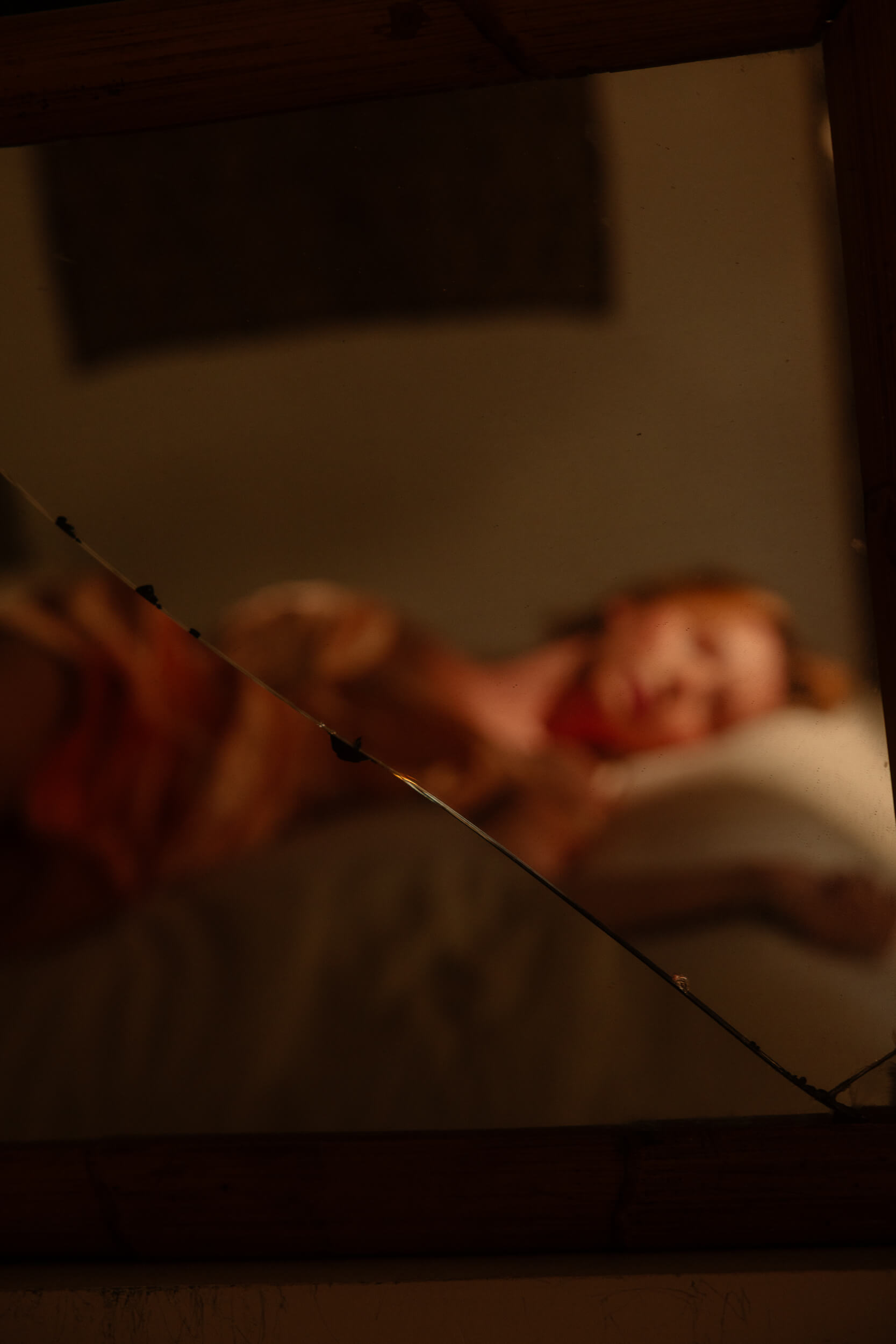
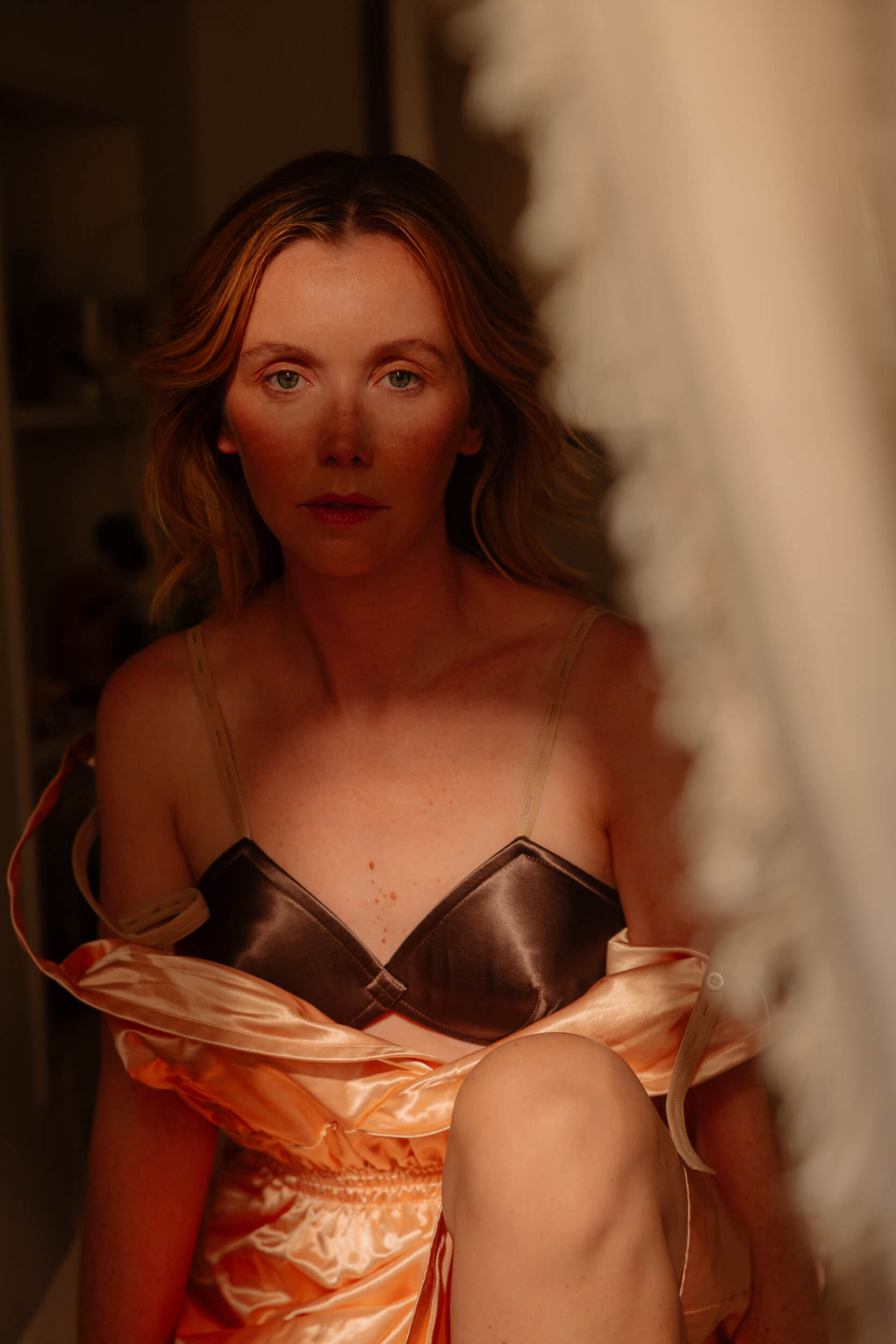
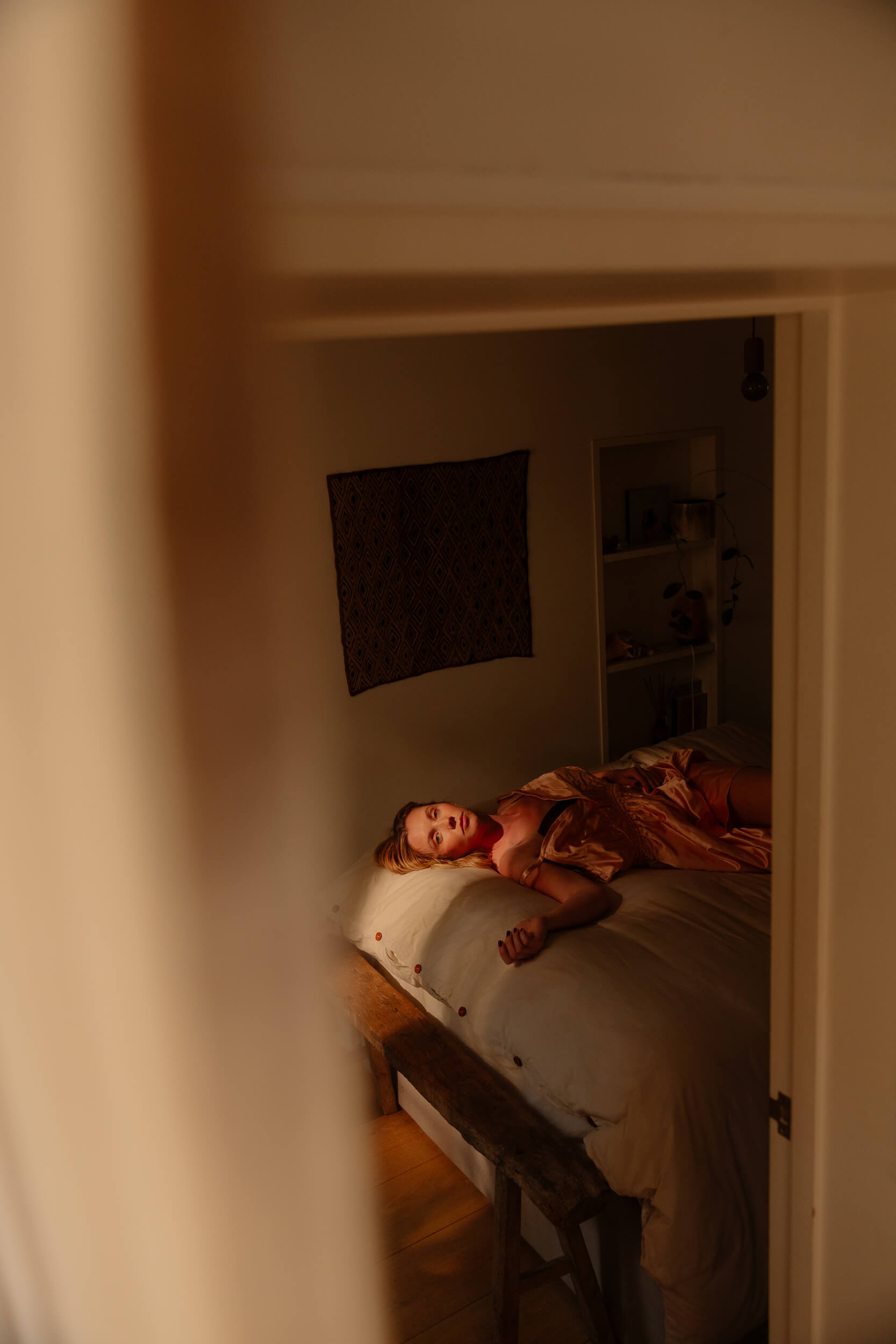
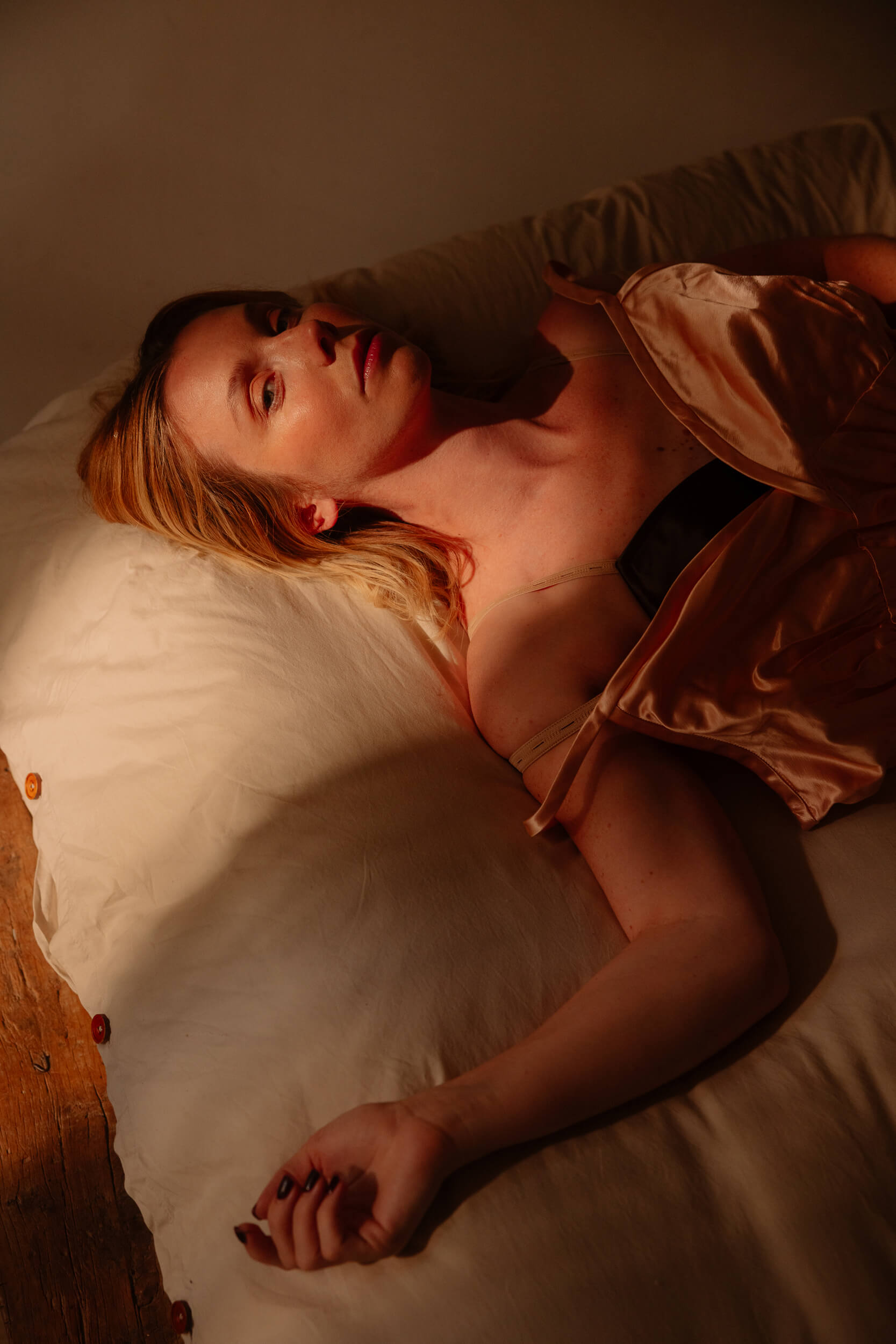
What does it mean for you to feel comfortable in your own skin?
I used to be so afraid of walking outside without makeup on. I used to be so afraid of going around and thinking that I was wrinkled already. AI mean, not that that’s a problem, but I really didn’t like people seeing me bare faced. Weirdly, as I’ve grown up, I’ve become really into not wearing any makeup all the time and being confident that my face is beautiful and that that’s fine. And then I’m funny. I like knowing that I’m funny and that that’s okay to be confident that you are and that that’s a bit of a superpower.
Also, I think I’m empathetic and that makes me feel powerful and strong knowing that I can empathise with people and connect with people. I think that it makes me a good actor.
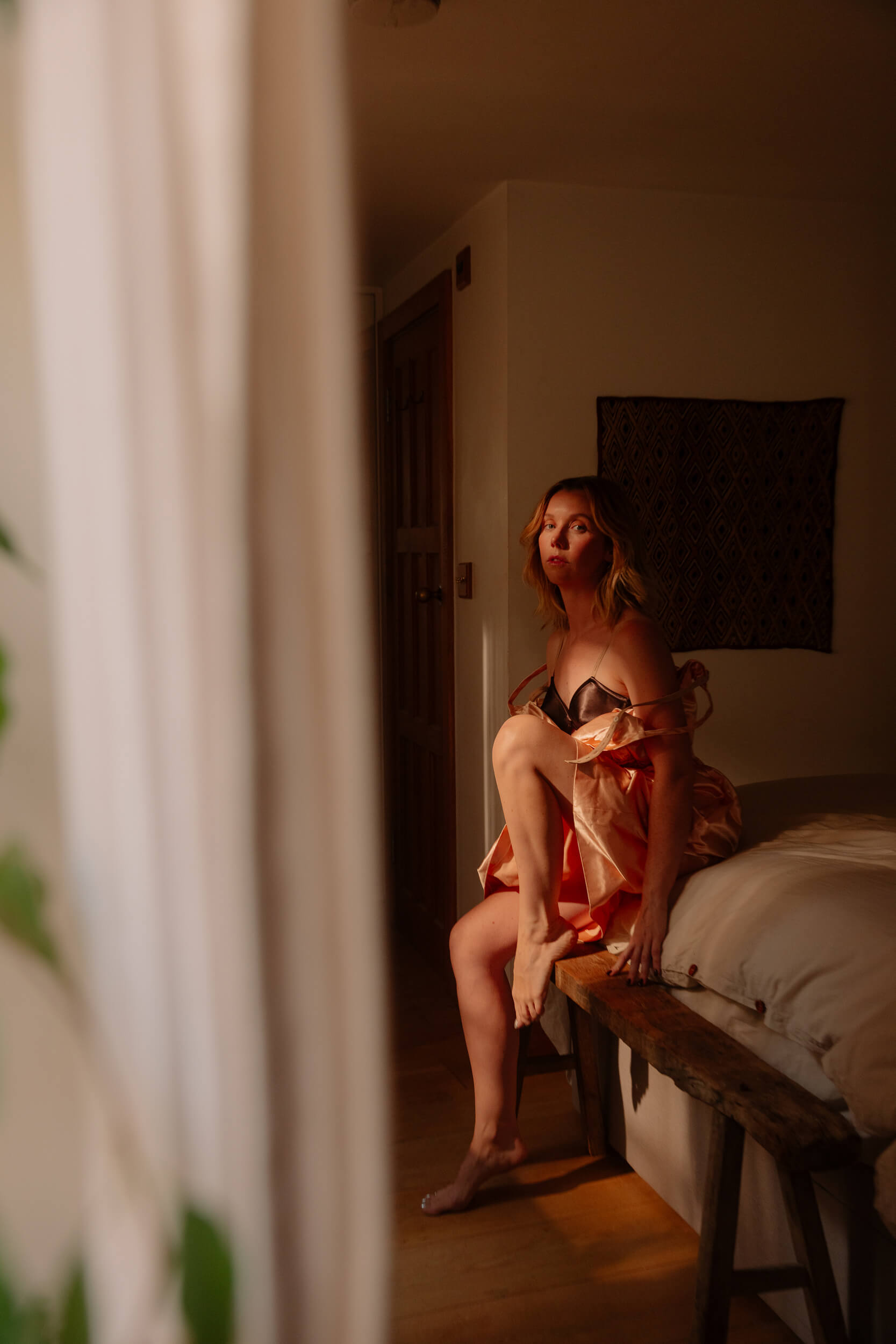
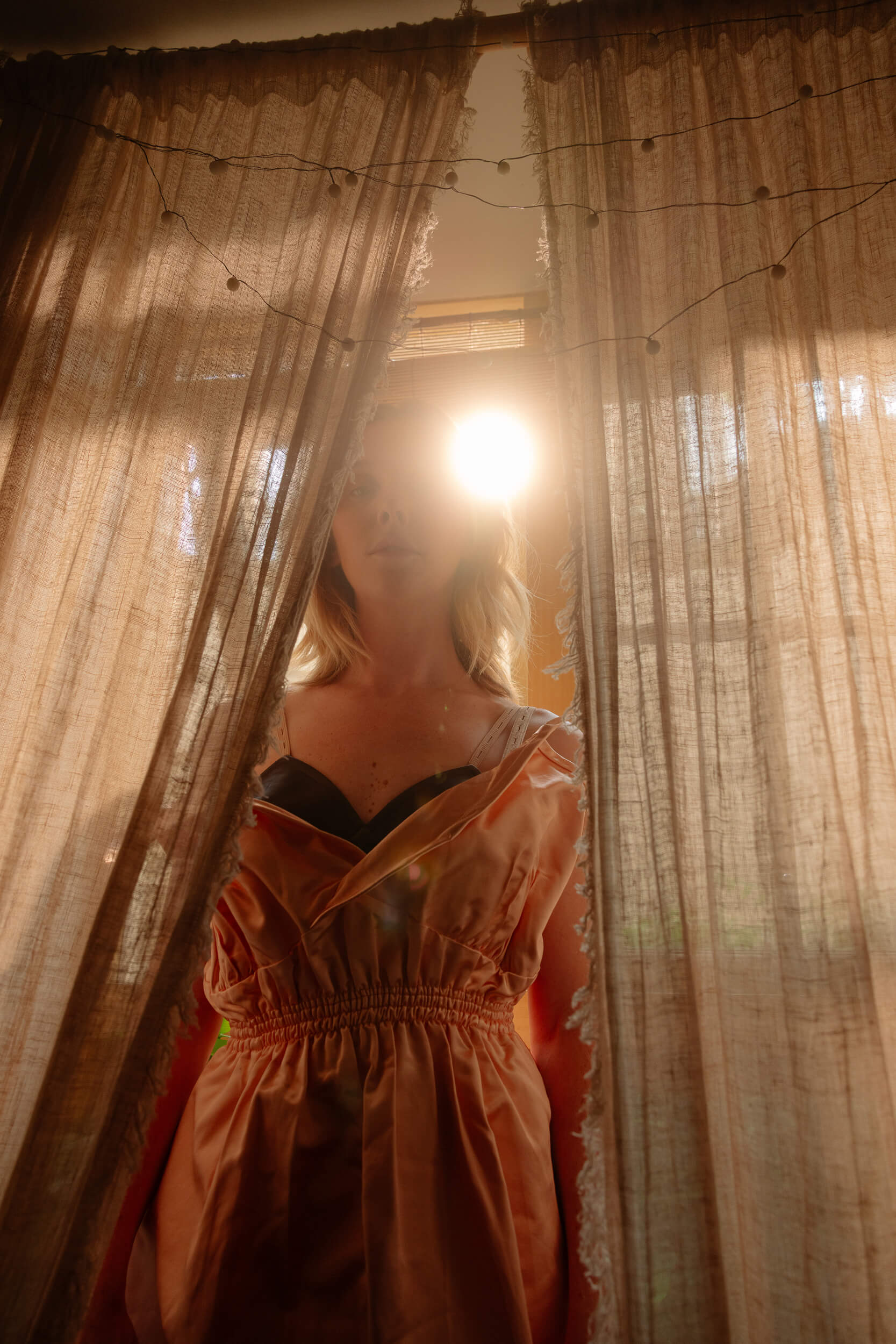
“I like knowing that I’m funny and that that’s okay to be confident that you are and that that’s a bit of a superpower.”
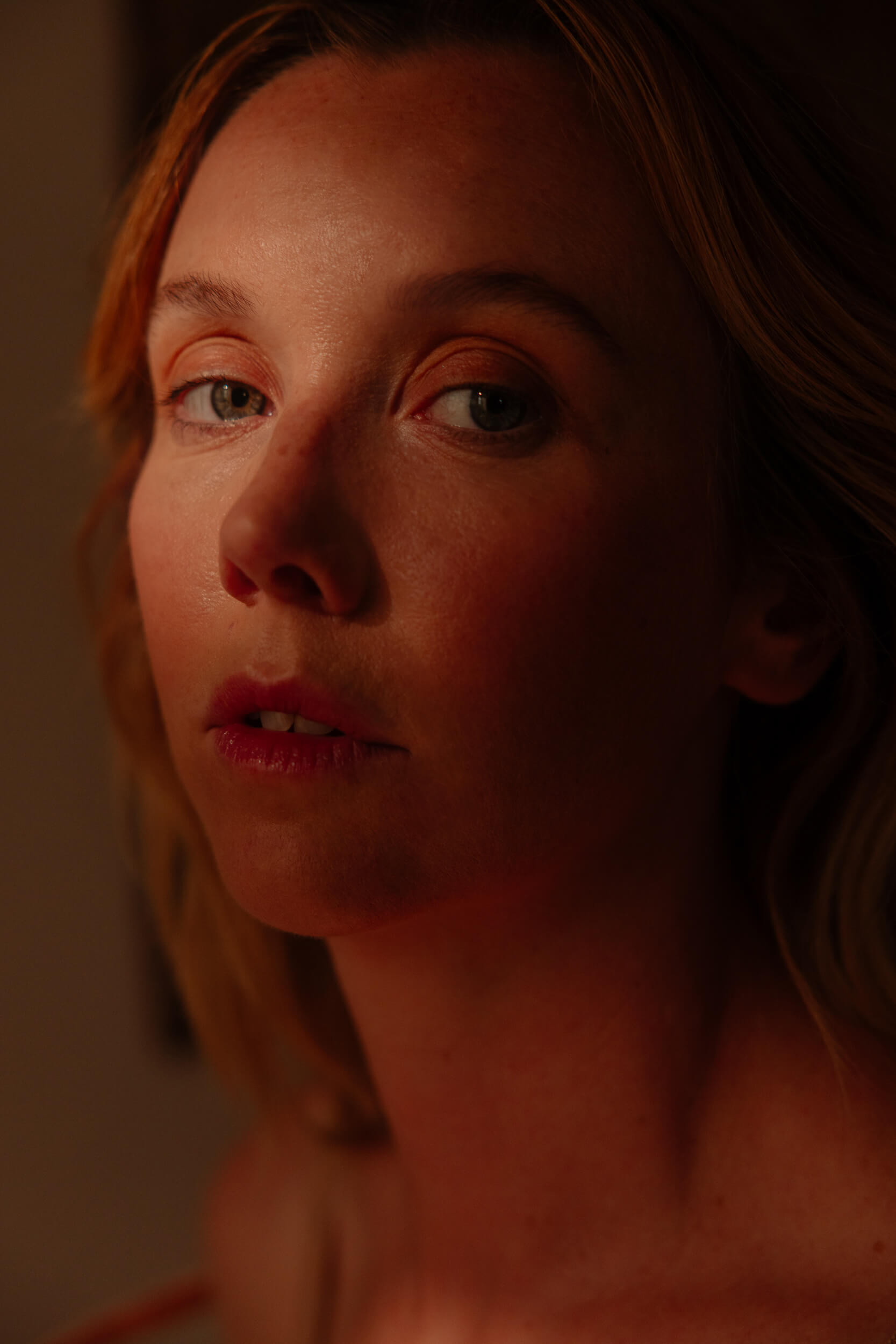
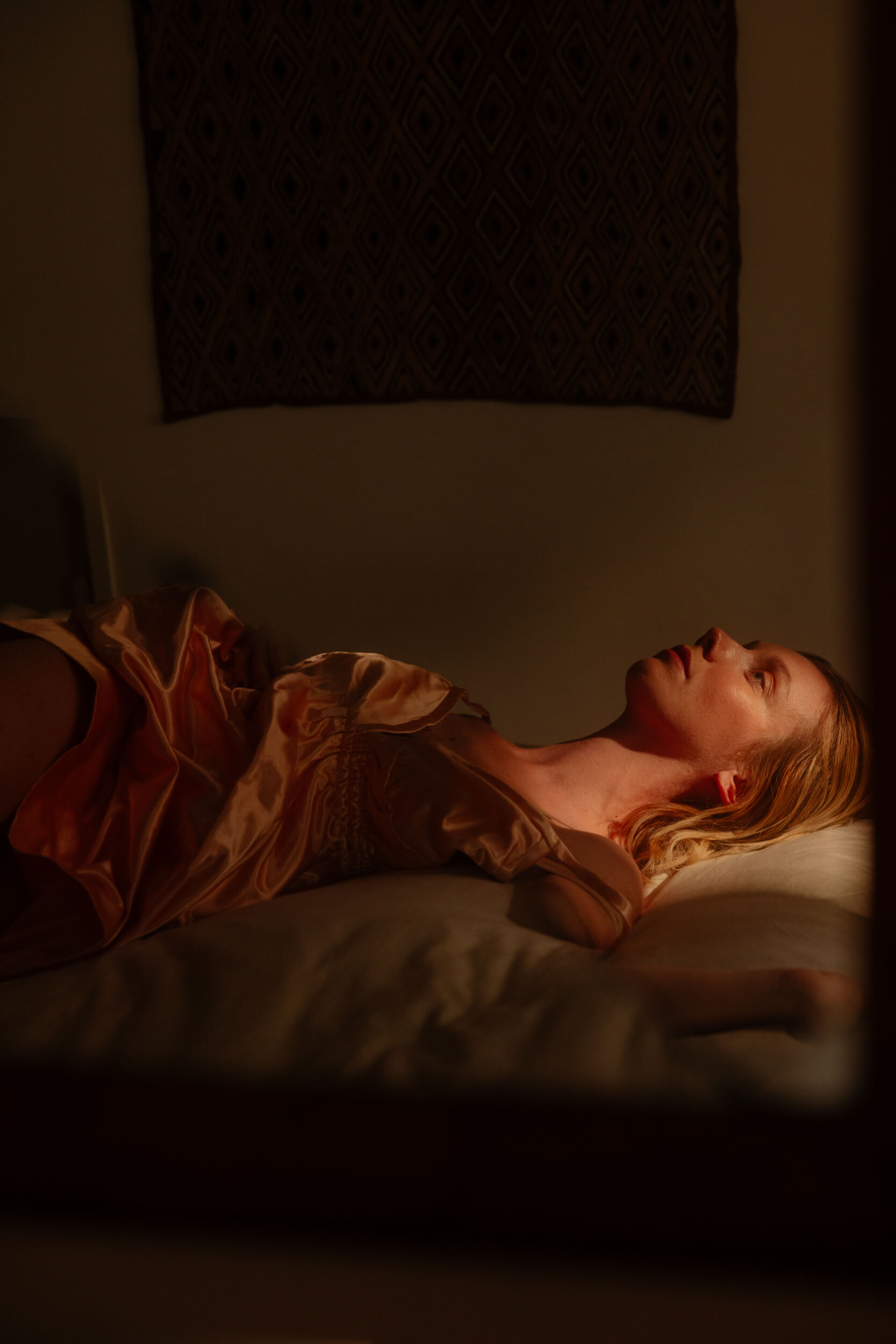
What is your happy place? What is it that you would like to see outside your window right now, and always and forever?
I think it’s become more and more about being by the beach.
If I could have a place by the beach, I’d be so happy. This is the only reason I want to have money, to be able to buy something that all my friends can live in and basically make a commune. If I can just buy a house with properties on it and look out my window in the morning and see my mates sitting outside having a coffee and I can go and join them and then we can go jump in the sea and my cat can be running around, and we can all just be like cooking dinner and breakfast together.
You know, I used to live in New Zealand when I was young and one of my best friends from school is Turkish and she took me and some friends away on this little sailboat in Turkey a couple of years ago and every morning we were on the water for five days. Every morning you’d wake up to the ocean and I remember the smell of her cooking Turkish sausages and honey and coffee brewing – I’d wake up in complete bliss and it wasn’t even the most fancy boat or anything like that, it was a quite traditional wooden sailboat, but to me it was all about the peace of having people that you love around you and just being together. So, I think if I can have a commune that will make me feel good, I’ll be fine.
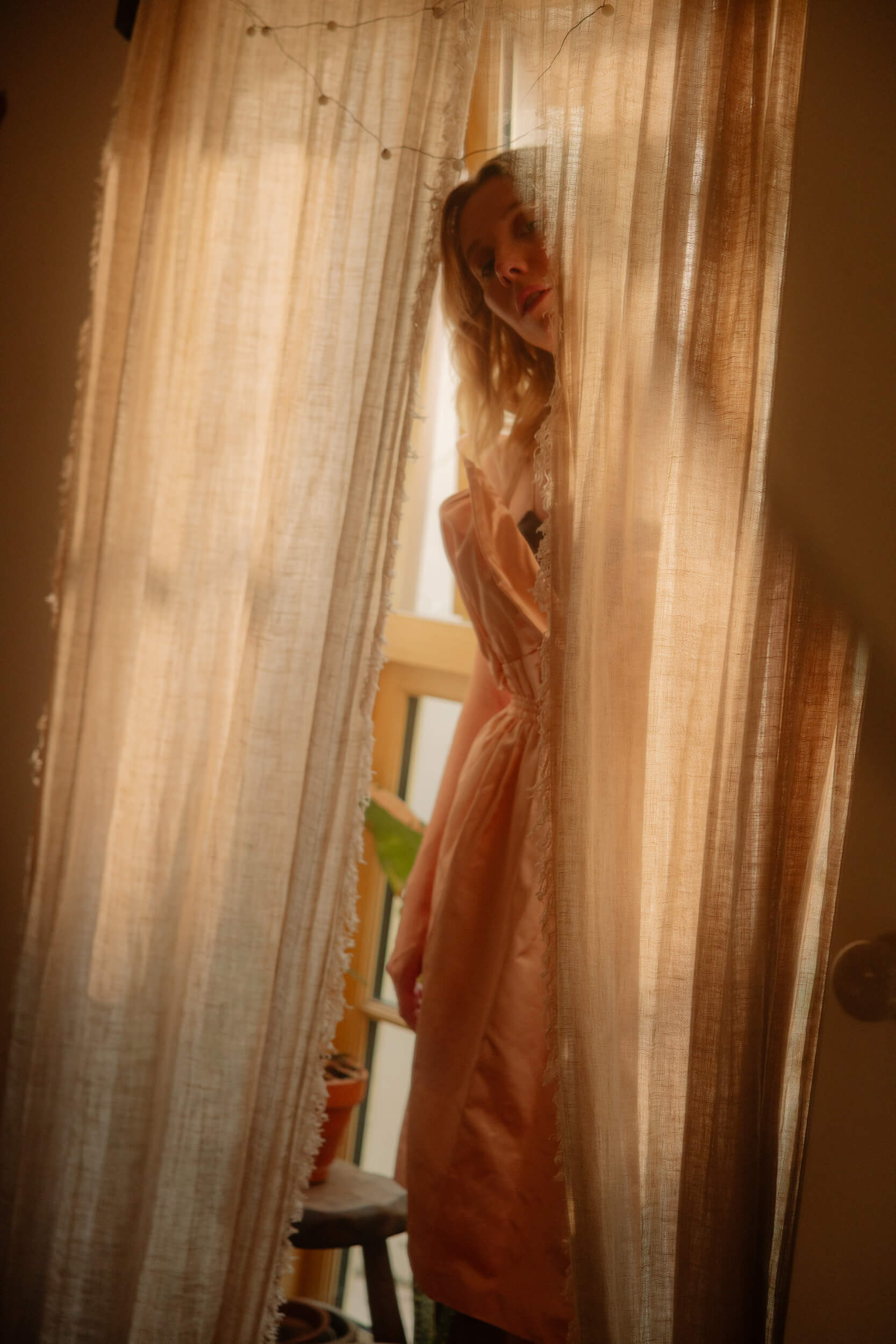
Photos & Video by Johnny Carrano.
Makeup by Pamela Cochrane.
Hair by Sky Cripps-Jackson.
Styling by Chloe Beeney.
Thanks to Rhea Francois.
Thanks to Premier PR.
LOOK 1
White lace dress: Manuri
Swimsuit bottoms: Arket
LOOK 2
Total Look: Sandro Paris
LOOK 3
Total Look: Miu Miu

